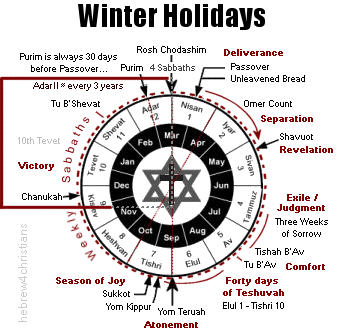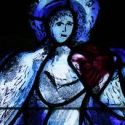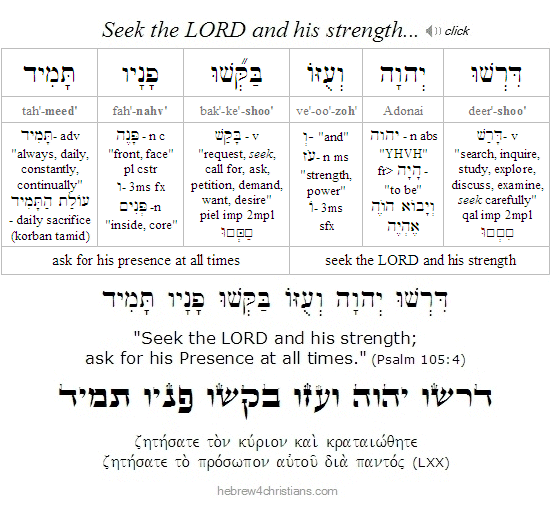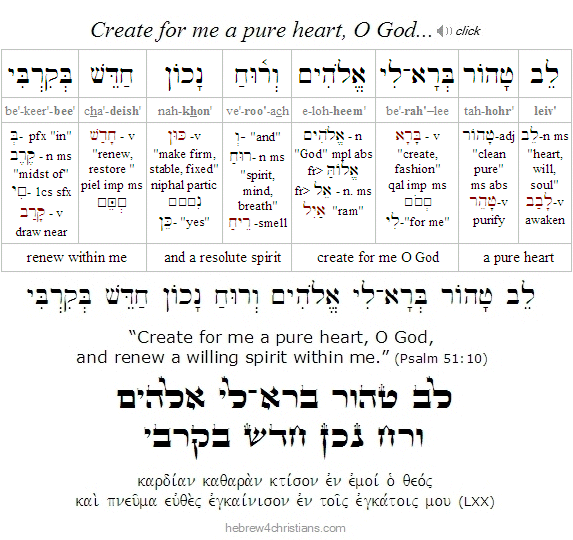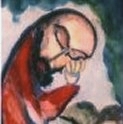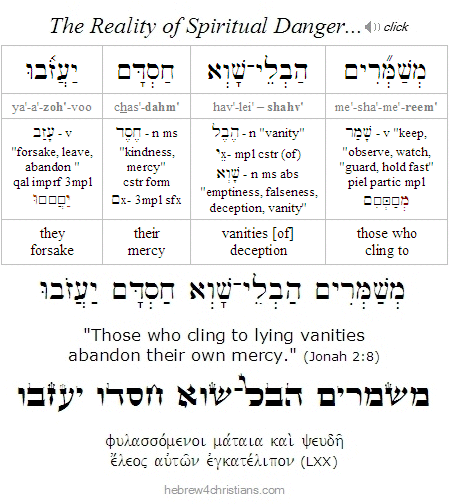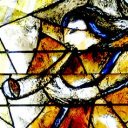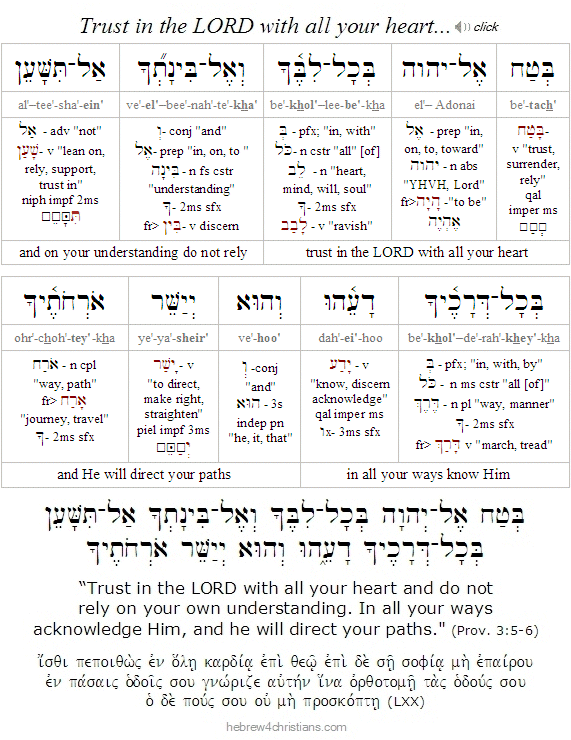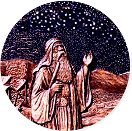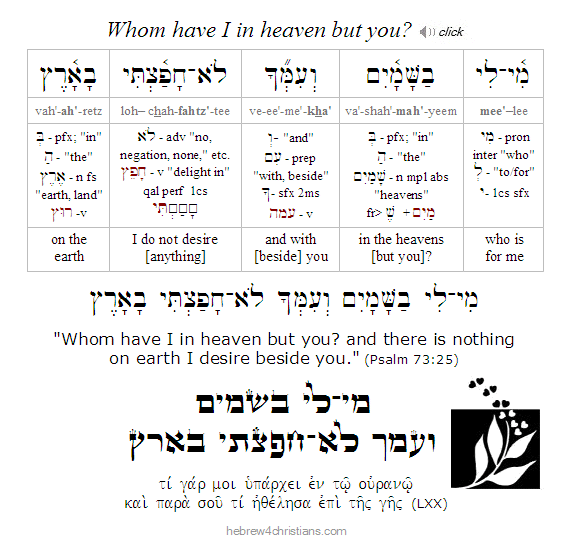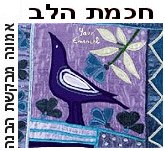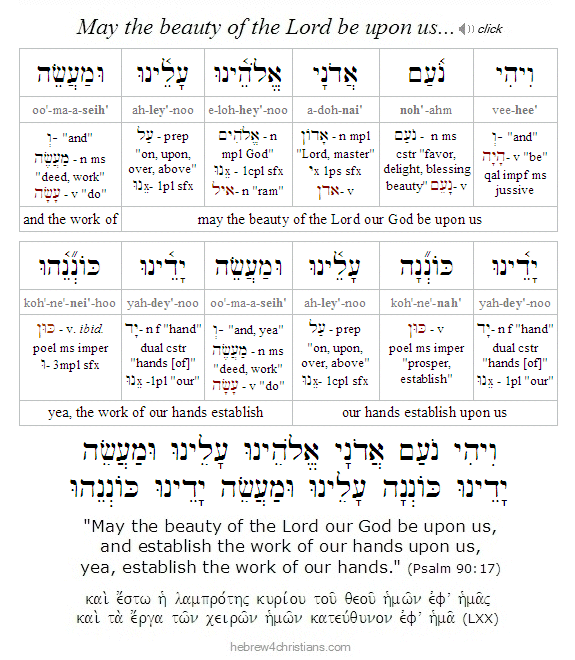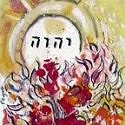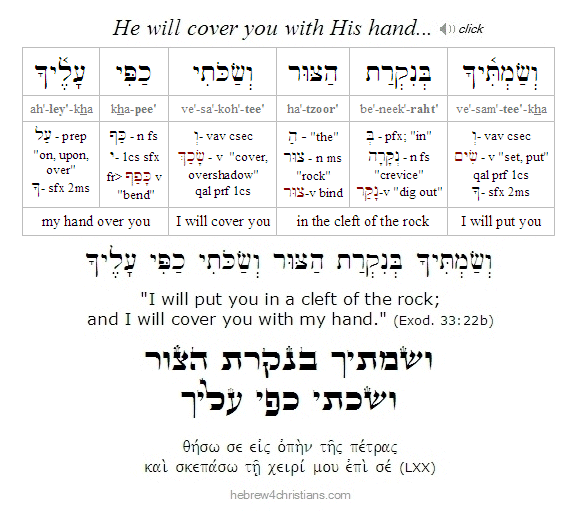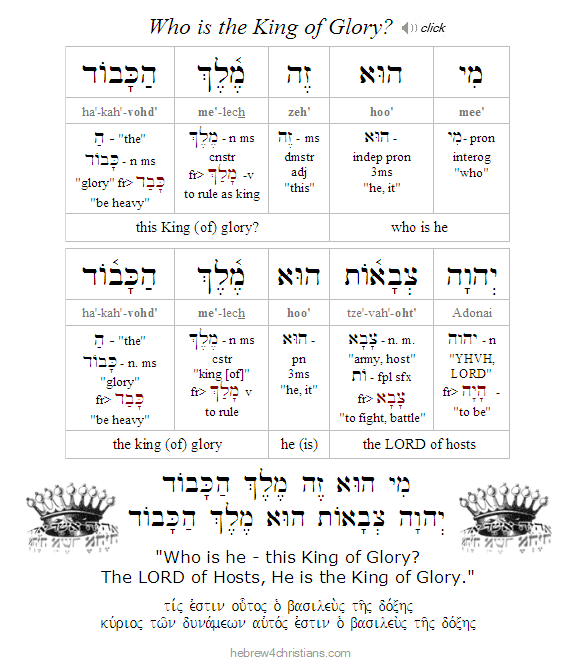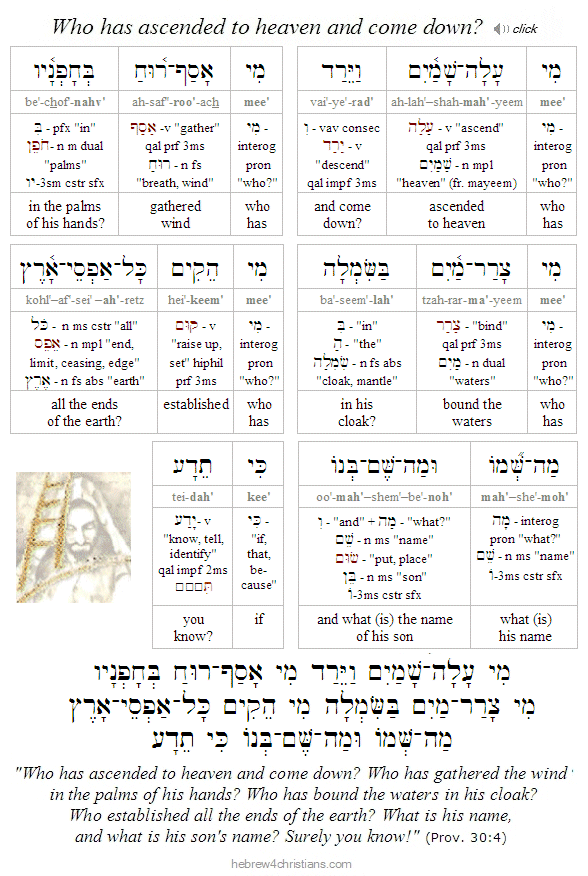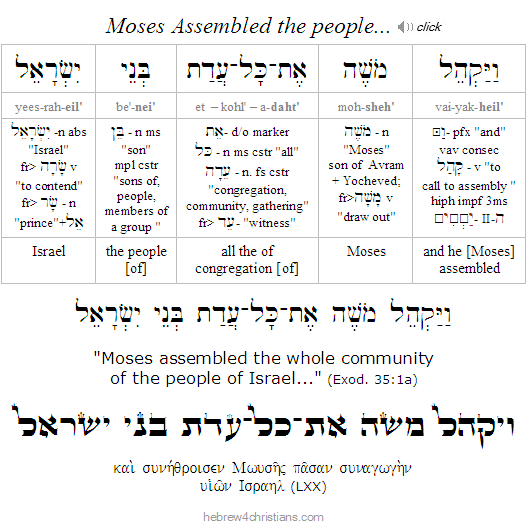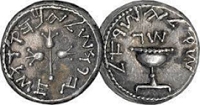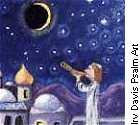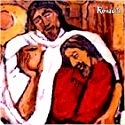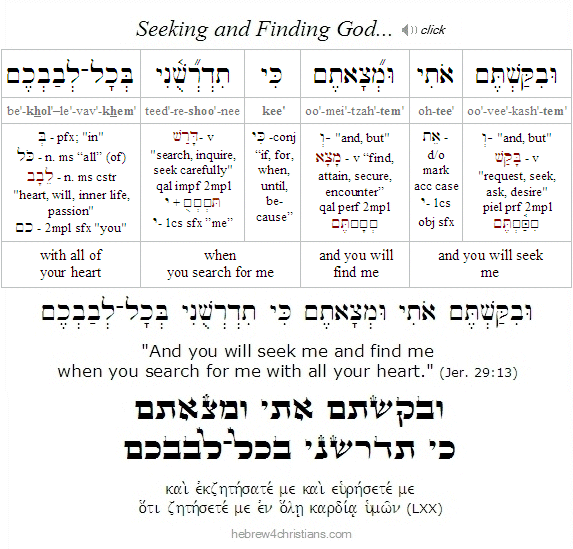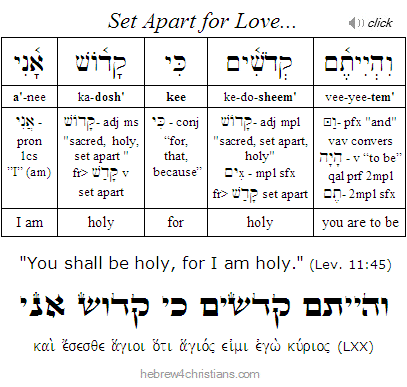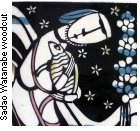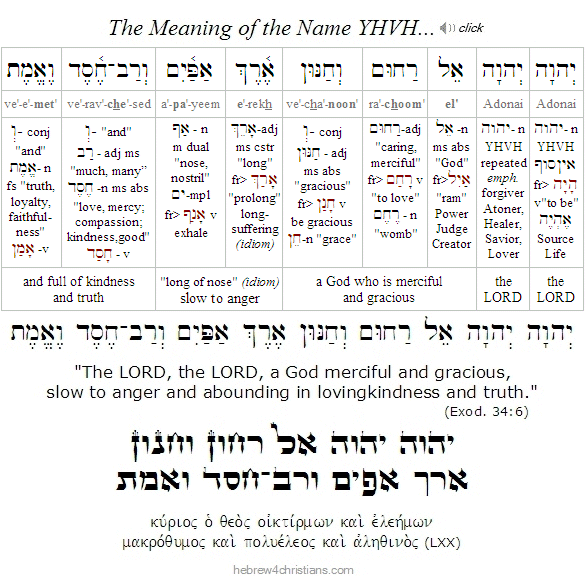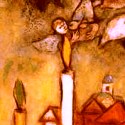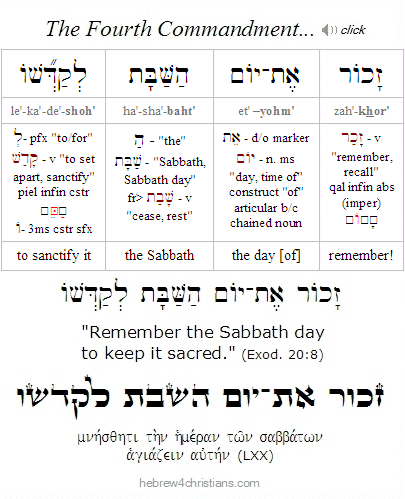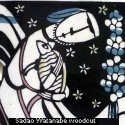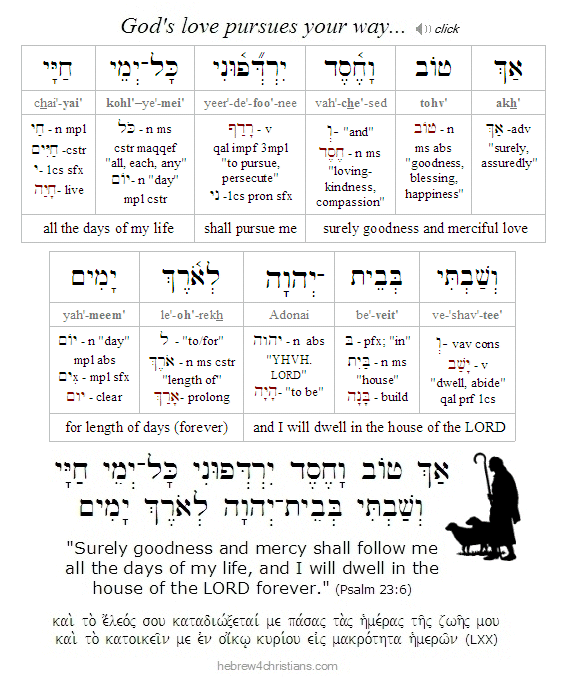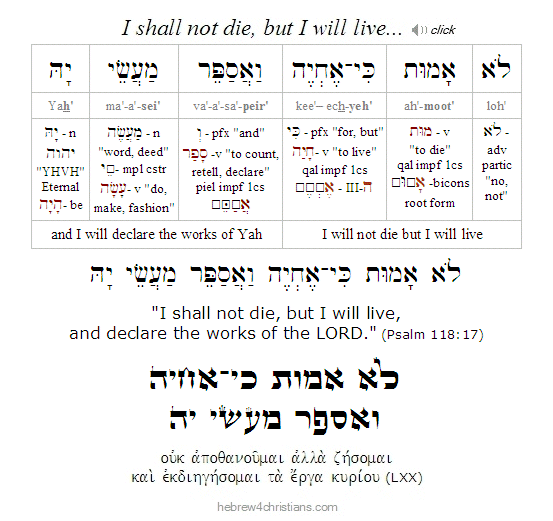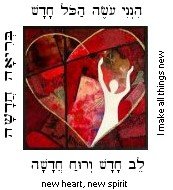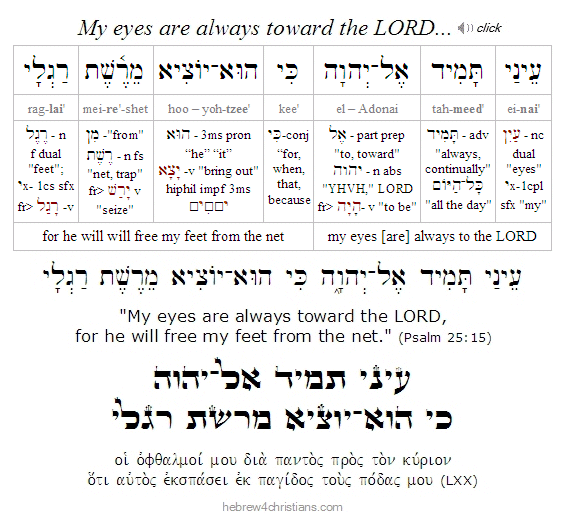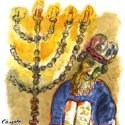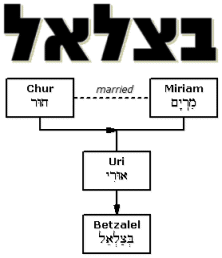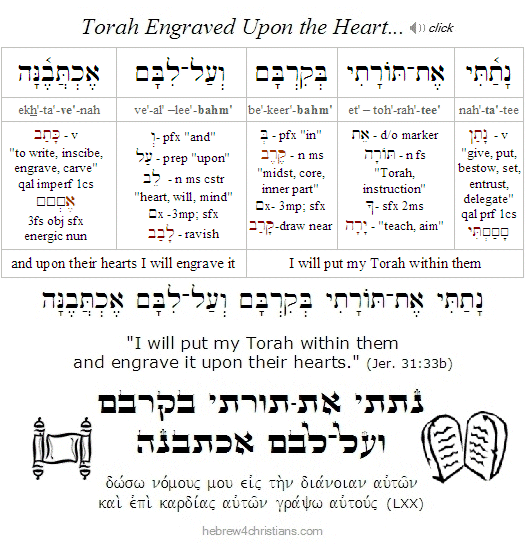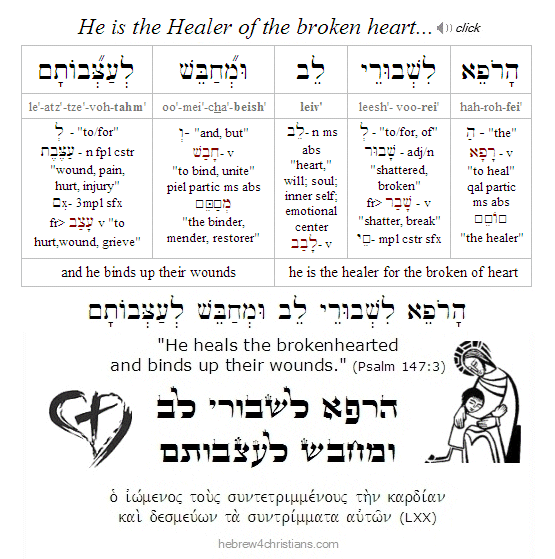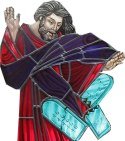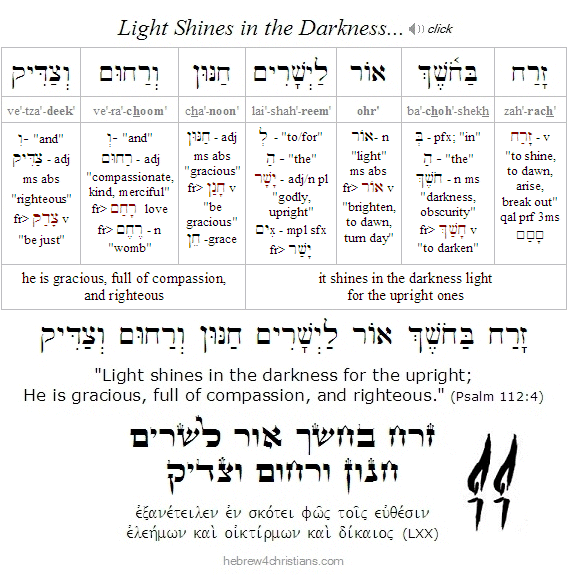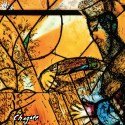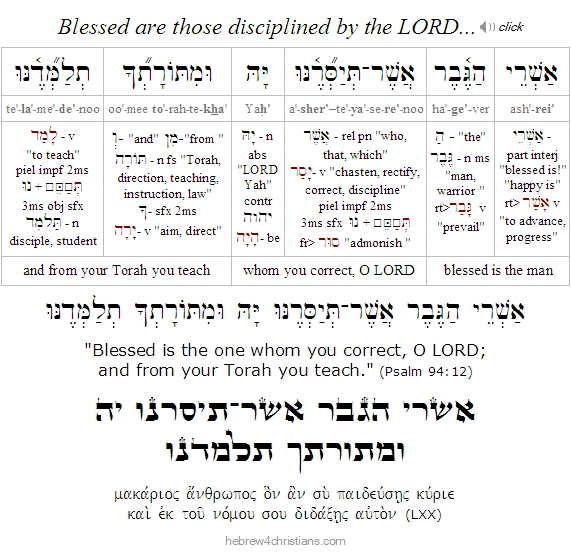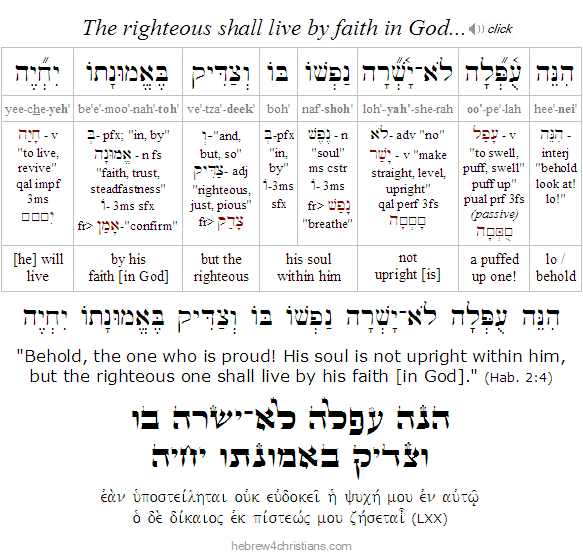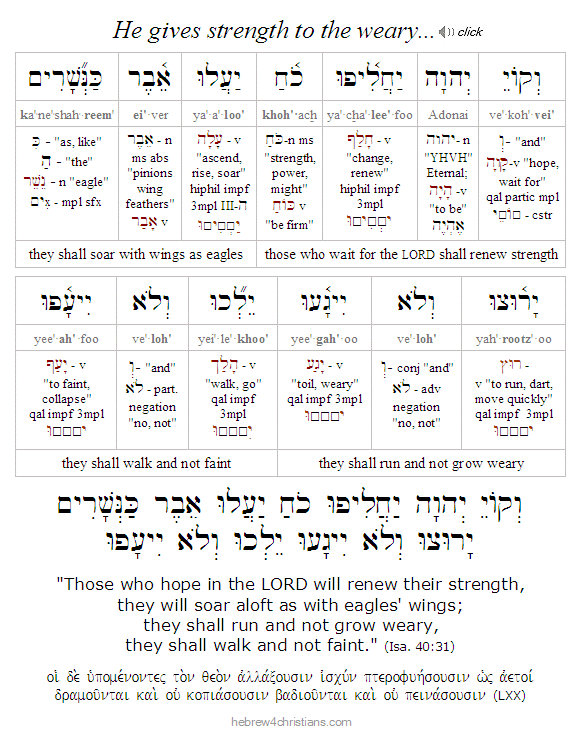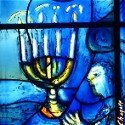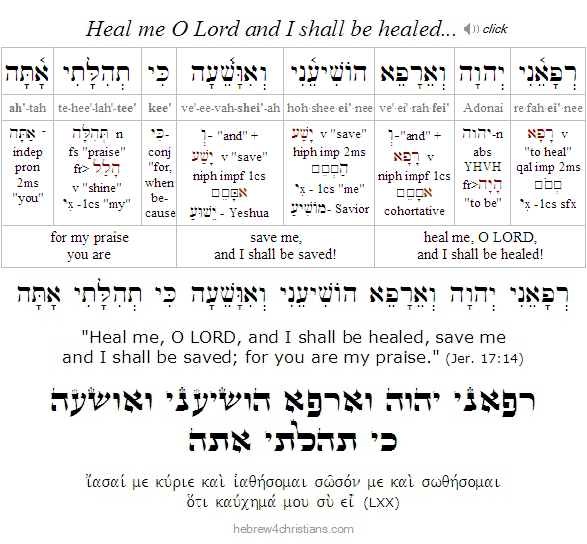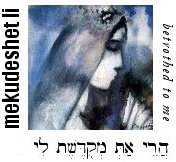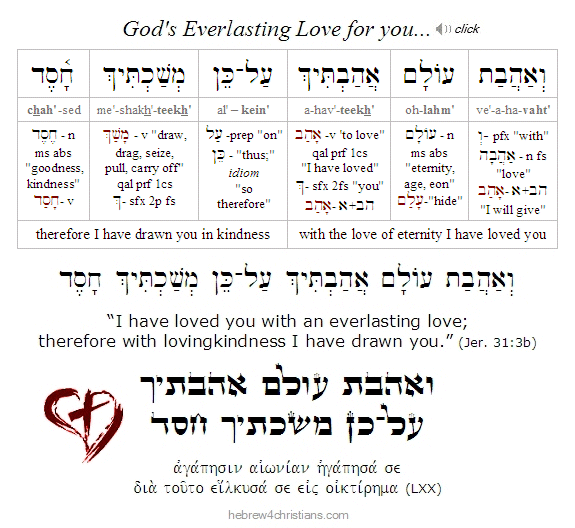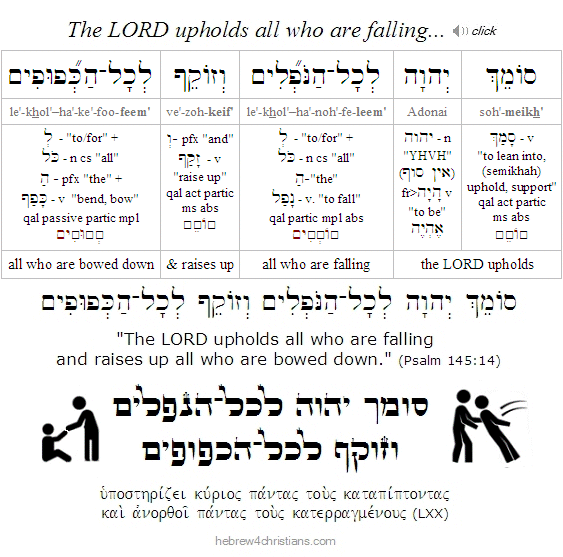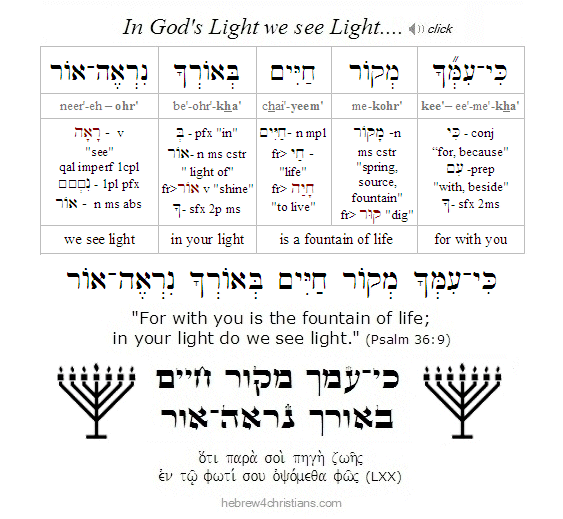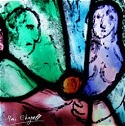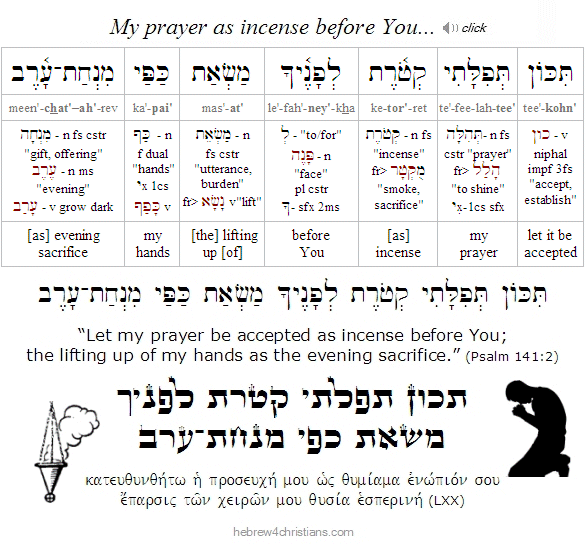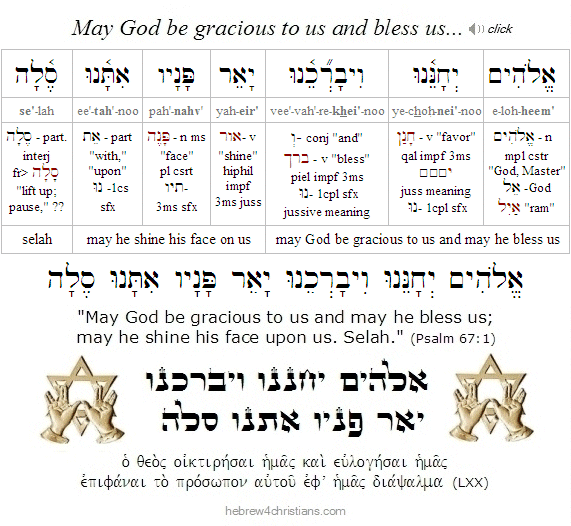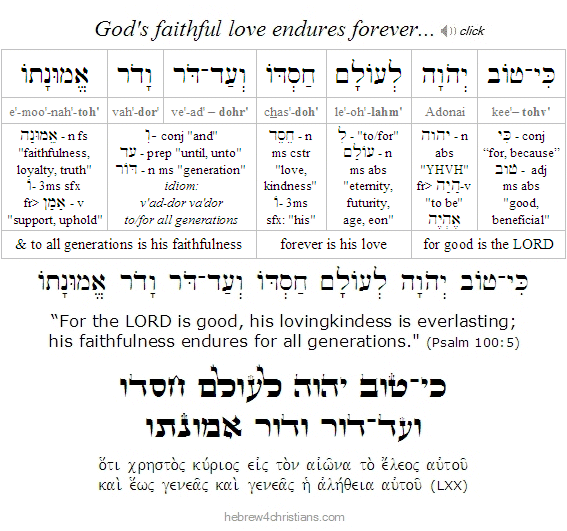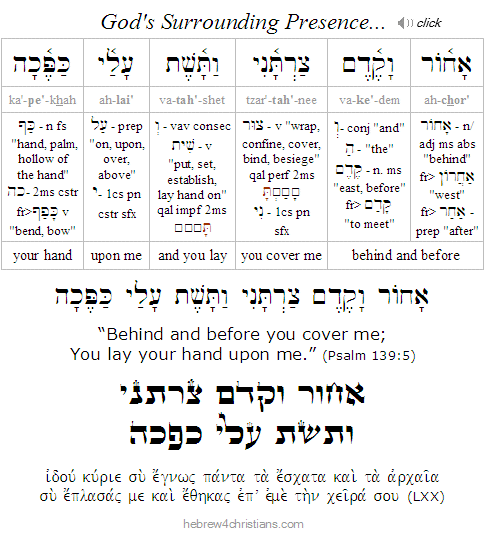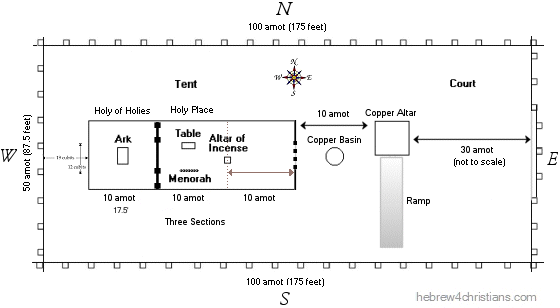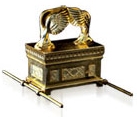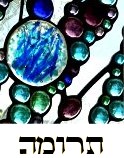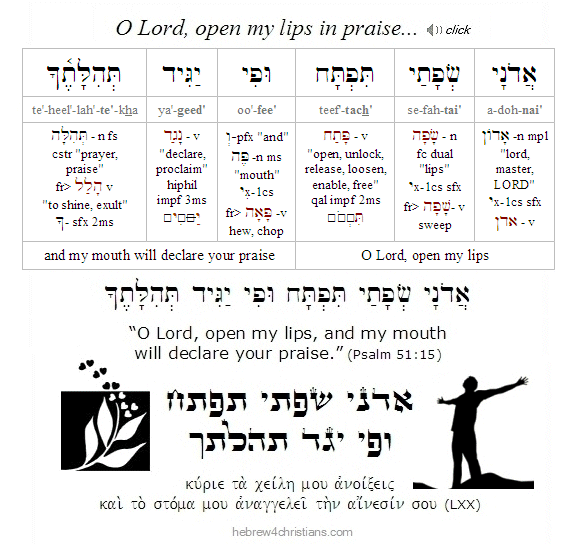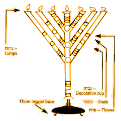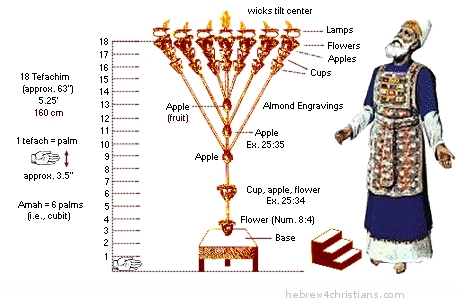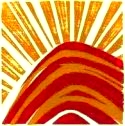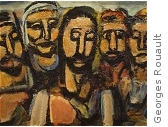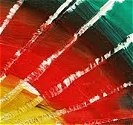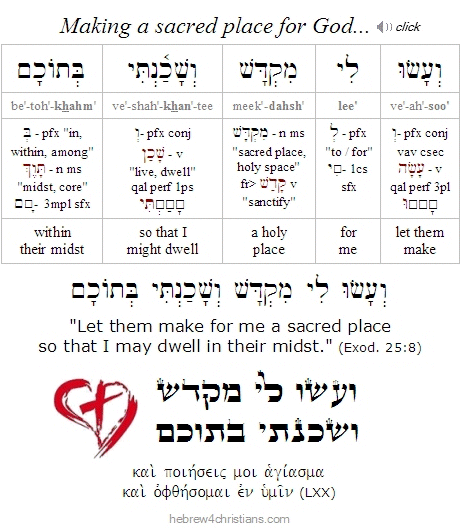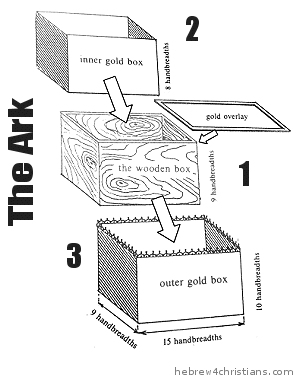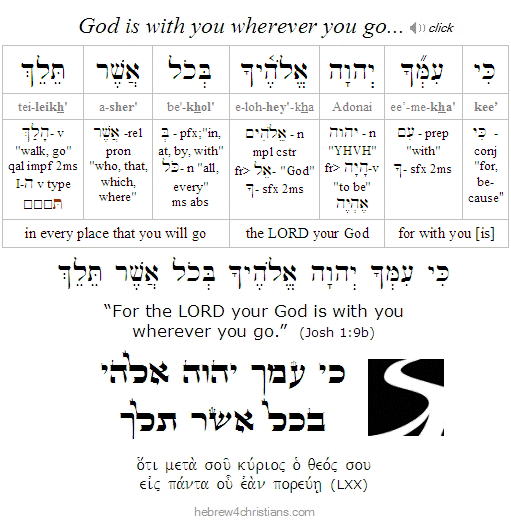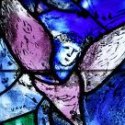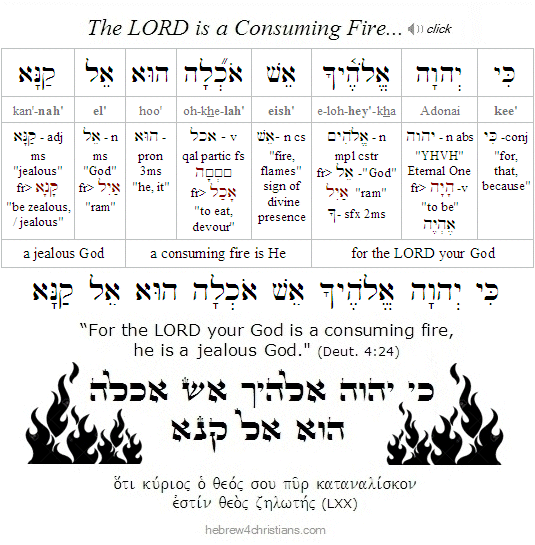|
|
|||||||||||||||||||||
 |
|||||||||||||||||||||
|
Learn Hebrew |
|||||||||||||||||||||
 |
|||||||||||||||||||||
|
Jewish Holiday Calendar For February 2019 site updates, please scroll past this entry....
The Winter Holidays: 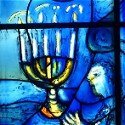 Note that in accordance with tradition, the following holiday dates begin at sundown:
February 2019 Updates
02.28.19 (I Adar 23, 5779) The Hebrew word for "world" or "age" is olam (עוֹלָם), which is derived from a root verb (עָלַם) that means "to conceal" or "to hide." God "hides" His face from us so that we will seek Him, and that means pressing through ambiguity of this world to discern and take hold of the truth. Therefore King David said, בַּקְּשׁוּ פָנָיו תָּמִיד/ bakeshu fanav tamid: "Seek His face continually" (Psalm 105:4). Note that the Hebrew gematria (numerical value) for the word "fanav" (i.e., "His face") is the same as that for the word "olam." When we truly seek God's face (i.e., His Presence), that is, "do teshuvah," we are able to discern the underlying purpose for our lives in this age... As it is written in our Scriptures: "Blessed is the one who endures temptation, for when he is tried, he shall receive the crown of life (עֲטֶרֶת הַחַיִּים) that the LORD has promised to those who love him" (James 1:12). The present age, then, constitutes a test that God providentially designs to lead us to the "crown of life," and we are made happy when we go through its fires and are not consumed. Indeed, only those who love the Lord will be able to withstand the fires... The "crown of life" symbolizes that we have truly received the purpose for which we were created and that we are identified with God's own passion and love. The light of the crown represents the Divine Presence within us, Life that overcomes despair on our behalf. דִּרְשׁוּ יְהוָה וְעֻזּוֹ deer·shoo · Adonai · ve·ooz·zoh "Seek the LORD and his strength;
"It is not the path which is the difficulty; rather, it is the difficulty which is the path." The ancient Greek version of the Torah (i.e., the Septuagint) translates this verse, "Seek the LORD and be strengthed; seek His face through everything (διὰ παντός)." The LORD God gives us "inner strength" (i.e., ἐγκράτεια, from εν-, "in" + κράτος, "strength" or "power") when we yield to "the power of His might" (ἐν τῷ κράτει τῆς ἰσχύος αὐτοῦ) (Gal. 5:22-23; Eph. 6:10). Therefore we must remember God's power and glory, for "He is the LORD our God (הוּא יְהוָה אֱלהֵינוּ); His judgments are in all the earth" (Psalm 105:7).
02.27.19 (I Adar 22, 5779) People confuse morality with religion, saying things like, "if I do good, the rest will take care of itself," but Yeshua did not come to simply teach (or reinforce) moral truth, but to die for our sins and to transform our nature. The message of the cross is not that we should reform ourselves with renewed hope, but rather that our old nature must die and be replaced with something far greater... When King David cried out to the Lord, "Create in me a clean heart, O God," he did not use the Hebrew word yatzar (יָצַר), which means to "fashion" or "form" something from pre-existing material (Gen. 2:7), but he instead used the word bara (בָּרָא), a verb exclusively used in the Torah to refer to God's direct creation of the cosmos (Gen. 1:1). In other words, King David understood that no amount of reformation of his character would be enough, and therefore he appealed to that very power of God that alone could create yesh me'ayin, or "out of nothing." Such was the nature of the remedy required that was fulfilled in the cross of Messiah... לֵב טָהוֹר בְּרָא־לִי אֱלהִים lev · ta·hor · be·ra·lee · e·lo·heem, "Create for me a pure heart, O God, Click for a Hebrew reading lesson:
Yeshua taught, "Blessed are the pure in heart, for they shall see God" (Matt. 5:8). The Greek word translated "pure" is katharos (καθαρός), sometimes used describe the cleansing of a wound (catharsis), or to describe the unalloyed quality of a substance revealed through refining fire. Metaphorically, then, purity of heart refers to separation from the profane - singleness of vision, wholeheartedness, passion, and focused desire for the sacred. Faith is a great trembling of love: "With this ring I do worship thee..." As we center our affections on Yeshua, we become pure in heart -- i.e., unified, made whole, and healed of our inner fragmentation. We see the Lord both in this world, through his effects, and then panim el panim (פָּנִים אֶל־פָּנִים), "face to face," in the world to come. Our hope purifies us for that coming great day of full disclosure (1 John 3:2-3; Heb. 12:14).
02.27.19 (I Adar 22, 5779) Do you sometimes have trouble trusting God? Do you wrestle with fear, anxiety, or worry? Does an inexplicable dread or sense of hopelessness sometimes oppress you? Do you secretly wonder what's wrong with you - and whether you are truly saved, after all? Please hang on. Doubting and questioning are often a part of the journey of faith, and we don't have to be afraid of our questions, concerns, and difficulties... Being full of "certainty" is not the same as being full of faith, after all, since many sincere people are sincerely self-deceived, and many people experience fear and trembling despite their faith. There is so much we simply do not know, and it is dishonest to pretend otherwise. God knows your heart, and he knows your secret fears. Thankfully, there is a special prayer included in the Scriptures for those times when we feel especially insecure: "Lord, I believe, help thou my unbelief..." (Mark 9:24) Here we may bring our (lack of) faith to God for healing....
02.27.19 (I Adar 22, 5779) Some people are afraid that God will punish them for their sins, but the true fear of God, yirat ha'shamayim, is rather the fear of losing our closeness to Him... The sages say that where it is written, "What does the LORD ask of you except to fear the LORD" (Deut. 10:12), we should read instead, "fear with the LORD" (לְיִרְאָה אֶת־יְהוָה), that is, we share his concern that we could forfeit the sanctity of a heart-relationship with Him due to carelessness and sin... We fear our sin because it blinds us from awareness of God's care and love. The fear of God can therefore be understood as God's fear that we will miss the blessing of intimately knowing him.
02.27.19 (I Adar 22, 5779) Why is it easier for many of us to see what's wrong than what's right? Why are we scandalized or even outraged when we encounter imperfections in light of our desires? In this world of constant flux, change, and invariable dissolution, is it realistic to expect perfection? Are not our expectations often romanticized notions of how things ought be rather than what they really are? Don't they often collide with the messy and unpredictable matters of life? The desire for elusive "perfection" leads to disillusionment and sorrow. Instead of gratefully accepting what we have, we ask "what if" or wonder about other possibilities that might bring us closer to our supposititious ideal. מְשַׁמְּרִים הַבְלֵי־שָׁוְא me·sha·me·reem · hav·lei-shav "Those who cling to lying vanities
"There appear to be many people who chose to go crazy (or become alcoholics, addicts, criminals, suicides) rather than have to bear the pain and ambiguity of a life situation that they have decided that they cannot stand" (Sheldon Kopp). Like Jonah we first must be "swallowed up" in the consciousness that we are undone and without remedy apart from God's direct intervention and deliverance. עָקב הַלֵּב מִכּל וְאָנֻשׁ הוּא מִי יֵדָעֶנּו (Jer. 17:9). We start there - in the "belly of the fish" - and later are resurrected to go forth by God's mercy and grace. Likewise we first see ourselves as dying and go to the cross, finding pardon and given the power of the ruach HaKodesh to live unto God according to the truth.
02.26.19 (I Adar 21, 5779) An implication of genuine faith in the LORD is the realization that your life is a sacred trust and therefore everything matters... Nothing is trivial; nothing is inconsequential. In the world to come you will be shocked to understand that everything you thought, everything you said, and everything you did was given to you from above, and therefore has tremendous significance (Matt. 12:36-37). Indeed, your entire life is on loan from heaven itself. Therefore "seek first the kingdom of God and His righteousness..." (Matt. 6:33). Faith invests all of the heart to the journey at hand; it seeks God's presence in all things and trusts God in all its ways (Prov. 3:5-6). "The present form (τὸ σχῆμα) of this world is passing away" (1 Cor. 7:31), and the heart of faith looks for a city whose designer and builder is God Himself (Heb. 11:10). "So we do not lose heart... For the things that are seen are turning to dust, but the things that are unseen endure forever" (2 Cor. 4:16-18). בְּטַח אֶל־יְהוָה בְּכָל־לִבֶּךָ be·tach · el · Adonai · be·khol · lee·be'·kha "Trust in the LORD with all your heart,
"Know Him in all your ways," that is, in all that you put your hand to do look for the Divine Presence and guidance (1 Cor. 10:31). As King David stated, "I have set the Lord always before me, because He is at my right hand, I shall not be moved" (Psalm 16:8). The very first step of the journey is to find hope, and every subsequent step is marked by hope's comfort. Therefore keep moving forward and don't look back. Yeshua warned us that the person who puts his hand to the plow and then turns back is not fit for the kingdom of heaven (Luke 9:62). Keep focused on what is most essential; guard yourself from the world and its varied distractions. Make a place within your heart for the Divine Presence; find a quiet moment to listen for God's comfort. Trust that God is on the road ahead for you; believe that God foresees your way and prepares a place for you. Ask for guidance from the Lord: "Cause me to know the way I should go, for I lift up my soul to you..." (Psalm 143:8).
02.26.19 (I Adar 21, 5779) The reason many of us may be unhappy or discontented is because we tend to expect more from this life than we should... We assume that we are entitled to prosperity, good health, and happiness during our lives, and if we fail to attain these ends we get discouraged. The apostle Paul admonished us to think spiritually about the meaning and purpose of life, particularly in light of omnipresent suffering... He wrote that our "momentary affliction" (θλῖψις) - that is, the cares and troubles of this life - work within us to attain an "everlasting glory beyond all comparison," and therefore we should focus not on present circumstances but on the deeper purpose, promise, and providence of God (2 Cor. 4:17-18). The visible fades away, the spiritual endures; our mortification leads to everlasting life, and that which is hidden will be manifest... מִי־לִי בַשָּׁמָיִם mee · lee · va·sha·ma·yeem "Whom have I in heaven but you? We must learn to find our sense of belonging and place within the heart of God. Striving to find our happiness in this life can entice us to lose ourselves in "olam ha'sheker" (עוֹלם השׁקר) -- the world of falsehood with its superficial satisfactions. Indeed, if we impatiently attempt to assuage our pain we may suffer further loss and our despair may grow deeper still, since our hunger for healing is an inner cry for healing love that only God can truly provide. Each soul is created with a radical sense of "aloneness," since - despite our closest relationships with other people - each of us comes into this world alone and will die alone... This sense of aloneness is a built in "hunger" for connection with God's presence. On the other hand, when we look to other things to meet our need for God, we invariably fall into the chaos and destruction of idolatry. To be healed from such counterfeit comfort we must "go through the wound" of our inner emptiness to find the divine consolation, and from there we will be given the heart to give of ourselves freely and without ambiguity.
02.25.19 (I Adar 20, 5779) From our Torah portion this week (i.e., Vayakhel) we read: "Let every wise-hearted (חֲכַם־לֵב) among you come and make all that the LORD has commanded" (Exod. 35:10). The sages comment that none of the people actually had the skills to fashion the glorious things of the sanctuary, but they had something even better – a passionate desire to do God's will, and this enabled them to access God's help to do what was needed. The purpose of the commandment was to involve the heart, to refine the character: "And everyone whose heart moved him brought what was needed…" (Exod. 35:22). God could have created the sanctuary "yesh me'ayin," out of nothing, but he wanted the heart of his people to express their desire for his presence in their midst. The same is true for the inner sanctuary of our hearts... רֵאשִׁית חָכְמָה יִרְאַת יְהוָה rei·sheet · chokh·mah · yeer·at · Adonai "The awe of the LORD is the beginning of wisdom;
וִיהִי נעַם אֲדנָי אֱלהֵינוּ עָלֵינוּ vee·hee · noh·am · Adonai · e·loh·hey·noo · ah·ley·noo "May the favor of the Lord our God be upon us,
02.25.19 (I Adar 20, 5779) When Moses asked the LORD, hareini na et-kevodekha - "Please show me your glory" (Exod. 33:18), the sages said he wanted to reconcile God's supreme power and goodness despite the prevalence of evil in the world. God answered, "I will make all my goodness pass before you, and I will proclaim before you my name the LORD (יְהוָה)... but," he said, "you cannot see my face, for man shall not see me and live" (Exod. 33:19-20). The early sages interpret God's answer to mean that once we encounter God's goodness and love (defined by the essential name י־ה־ו־ה), we must trust that what is beyond our understanding nevertheless works for our ultimate good, even if its purpose may be unknown to us at the present time (Rom. 8:28). The LORD said both: "I will make my goodness manifest to you," and "you cannot see me and live," which means that we "see through a glass darkly" as we sojourn through this world (1 Cor. 13:12). God manifests yet still we can't fully see... In this life you may stand near God in the "cleft of the rock," on the very mountaintop of revelation, but you will still be in a cloud of unknowing (Exod. 33:22-23). Nevertheless God promises to "shelter you with his hand"; he will provide you a place of refuge and the strength to keep trusting despite incomprehensible times of testing.
"We speak the wisdom of God, hidden in a mystery (ἐν μυστηρίῳ τὴν ἀποκεκρυμμένην), that God decreed before the ages for our glory. None of the rulers of this age understood it, for if they had known it, they would not have crucified the LORD of Glory (τὸν κύριον τῆς δόξης). But just as it is written, "No eye has seen, no ear has heard and no one's heart has imagined all the things that God has prepared for those who love him," but God has revealed them to us by his Spirit. For the Spirit searches all things, even the deep things of God" (1 Cor. 2:7-10). The "hidden wisdom" of God is Yeshua, who is the very LORD of Glory (יהוה הַכָּבוֹד) crucified for the atoning sacrifice and salvation of the world (note that Paul identifies Yeshua as YHVH). "Thine O LORD ... is the glory" (1 Chron. 29:11). The natural person (ψυχικός) cannot receive the things of the Spirit, however, for they appear foolish to him, neither can he understand them because they are spiritually (πνευματικῶς) discerned (2 Cor. 2:14). The glory of God demonstrated in the crucifixion of the Messiah is incomprehensible to both the worldly wisdom of the Greeks and to Jewish Messianic expectation (1 Cor. 1:22-25).
[ The following is related to this week's Torah reading, parashat Vayakhel... ]
02.24.19 (I Adar 19, 5779) Four special Sabbaths occur just before the start of spring: two before Purim and two before Passover. Collectively, these Sabbaths are called "The Four Shabbatot" and four additional Torah readings (called Arba Parashiyot, or the "four portions") are read on each of these Sabbaths in preparation for the holidays. The names of these four Sabbaths are Shekalim, Zakhor, Parah, and HaChodesh, respectively.
02.24.19 (I Adar 19, 5779) Note that Wed., March 6th marks Rosh Chodesh Adar II (חודש אדר), that is, the "thirteenth" month of the Jewish calendar (counting from the month of Nisan). During Jewish "leap years" an additional month is inserted into the Jewish calendar, and the month of Adar is appended by an additional month called Adar Sheni (or Adar II). From the point of view of the holidays, Adar II is considered the "twelfth month," so the holiday of Purim, for instance, is always celebrated during Adar II during Jewish leap years....
02.22.19 (I Adar 17, 5779) "Now without faith it is impossible to please him, for the one who approaches God must believe that he exists and that he rewards those who seek him" (Heb. 11:6). Exercising faith is the struggle to believe in the unseen presence of the Living God; it is an act of will that chooses to trust that ultimate reality is "for-you" reality, despite the temptation to succumb to fear. But faith is a matter of earnestness and heart. As Kierkegaard once said, Truth is not something you can appropriate easily and quickly. You certainly cannot sleep or dream yourself into the truth. No, you must be tried, do battle, and suffer if you are to acquire truth for yourself" (Works of Love). Indeed "faith" that simply conforms or assents with a creedal formula may actually indicate doubt if it refuses to ask searching questions and to struggle through our limitations. Simply going to a church or religious assembly and mindlessly reciting (or assenting to) a prayer may therefore be a temptation against the true life of faith... Theology can become an evil if it no longer regards itself as a quest for truth as much as the protection of a belief system. A living faith realizes that God cannot be known by means of the rational intellect but by the agency of the heart quickened by the Holy Spirit. Faith pours out its heart to God like a child pleading with his father. Doesn't God call you his child? "You are children of the LORD your God" it says in our Scriptures (Deut. 14:1). When you trust God as your Father you may "come boldly" before him, sharing your thoughts, desires, feelings, joys, sorrows, and troubles without dread. וּבִקַּשְׁתֶּם אתִי וּמְצָאתֶם oo'veek·kash·tem · oh·tee · oo·me·tzah·tem "When you will seek me, you will find me, In the end, if we cannot say we have lived well, then nothing else will matter... Seeking God is a process, a "how" of life, not a recipe or formula, no matter how venerated. Seeking God is the goal of life, and in the world to come, I am afraid that most of us will regret that we did not pursue the Lord with all our hearts while we had the opportunity to do so...
02.22.19 (I Adar 17, 5779) From our Torah we read: "For I am the LORD who brought you up out of the land of Egypt to be your God. Therefore you are to be holy, for I am holy" (Lev. 11:45). Because we are God's people, his redeemed children, we are made holy, just as God is holy (1 Pet. 1:15-16). Holiness, however, is not a matter of what you do (such as wrapping yourself in religious rituals) but instead is a matter of what you "allow" to happen: You let go and allow yourself to be rescued and taken up from the "depths of Egypt" to be with God. Holiness is something you receive; it is a gift of being "set apart" to be sacred and beloved by God. Genuine holiness (i.e., kedushah) is connected with love and grace. וִהְיִיתֶם קְדֹשִׁים כִּי קָדוֹשׁ אָנִי vee-yee-tem · ke-doh-sheem · kee · kah-dohsh · ah-nee "Therefore you are to be holy for I am holy."
02.21.19 (I Adar 16, 5779) Where it is written, "the LORD is my Shepherd; I shall not want" (Psalm 23:1), we note that "I shall not want" (לא אֶחְסָר) does not mean "I shall not desire," but rather "I shall not lack." When the Lord is your Shepherd, you can trust that you have all that you need. Note that David uses the future tense here (אֶחְסָר) because God is ahead of your next moment, so to speak: "Your Father knows what you need before you ask Him" (Matt. 6:8). God's Name means Presence, Life, Love, and "I-AM-with-you-always." Yeshua is our Good Shepherd (הָרעֶה הַטּוֹב) who makes us lie down in green pastures, a place of abundant life, and then leads us to still waters, literally "waters of rest" (מֵי מְנֻחוֹת), that will restore your soul (the verb translated "restore" is an intensive passive of the verb shuv, "to turn" (שׁוּב), indicating that the Shepherd causes your soul to return to the Divine Presence). Yeshua said, "My sheep hear my voice, and I know them, and they follow me. I give them eternal life, and they will never perish, and no one will snatch them out of my hand" (John 10:27-28). Yeshua is the one who makes for us the paths of righteousness; He leads us on the way to the Father (John 14:6). יְהוָה רעִי לא אֶחְסָר Adonai · roh·ee · loh · ech·sahr "The LORD is my shepherd; I shall not lack. "Fear not, little flock, for it is your Father's good pleasure to give you the kingdom" (Luke 12:32). Therefore "be strong and of good courage" - chazak ve'ematz (חֲזַק וֶאֱמָץ). The LORD God promises "never to leave you nor forsake you," and to be with you wherever you go (Josh. 1:5,9; Heb. 13:15, Psalm 139; Matt. 28:20). In the Greek New Testament the wording of Hebrews 13:5 (i.e., "I will never leave you, nor forsake you") is highly emphatic: "Not ever will I give up on you (οὐ μή σε ἀνῶ); no, not ever will I leave you behind (οὐδ᾽ οὐ μή σε ἐγκαταλίπω)." May you hear the voice of the Good Shepherd calling you, and may He forever keep you under His watchful care. Amen.
02.21.19 (I Adar 16, 5779) "A new commandment (מִצְוָה חֲדָשָׁה) I give to you, that you love one another (ἀγαπᾶτε ἀλλήλους): just as I have loved you, you also are to love one another" (John 13:34). What's new about this mitzvah is assuredly not the duty to love God and one's neighbor, since Yeshua had already affirmed the Shema and directly linked the love of God with our duty to care for others (see Matt. 22:37-39). No, what's new here is Yeshua Himself - his sacrificial grace, his unconditional acceptance, his "reckless" mercy, his everlasting atonement, and the abounding favor of God we find exclusively in him. The Torah of Yeshua is the absolute reverence of human life itself, where each soul is understood as being of infinite significance before the very Throne of God Himself. [ The following is related to our Torah reading this week, parashat Ki Tisa... ] יְהוָה יְהוָה אֵל רַחוּם וְחַנּוּן Adonai Adonai El Ra·choom ve·chan·noon "The LORD, the LORD, a God merciful and gracious, Earlier God had revealed to Moses that the Name YHVH (יהוה) means: "He is Present" (i.e., the word is a play on the Hebrew verb hayah [הָיָה], "to be"), and therefore God is "always there" (Exod. 3:14). The great I AM (אֶהְיֶה) means God stands outside of the constraints of time, "one day is as a thousand years" and "a thousand years as one day" before Him (2 Pet. 3:8). Just as a thousand years is but "a watch in the night" (Psalm 90:4), so one day is as a thousand years. God's Spirit broods over all things and sustains the entire universe. God is "necessary being," the Source of Life, and foundation for all other existence. God's creative love and power sustain all things in creation...
[ The following is related to our Torah reading this week, parashat Ki Tisa. Please read the Torah portion to find your place here... ] זָכוֹר אֶת־יוֹם הַשַּׁבָּת לְקַדְּשׁוֹ za·khor · et · yom · ha·shab·bat · le·ka·de·sho "Remember the Sabbath day, to keep it holy." We are not legalistic about Sabbath observance, of course, since that surely misses the point. As Yeshua taught us: "The Sabbath was made for man, not man for the Sabbath" (Mark 2:27). Note that well. The Sabbath was made -- it is the result of God's work performed on our behalf: "Come unto me, all ye that labour and are heavy laden, and I will give you rest" (Matt. 11:28). There remains a "Sabbath rest" for the people of God, which is the principle of God's power effecting life within us. The Sabbath is a delight – not a burden; a time for celebrating the finished work of Yeshua (Isa. 58:13; Heb. 4:9).
Note: For more on this subject, see the Ki Tisa article, "Shabbat as a Sign."
02.20.19 (I Adar 15, 5779) Where it says in the Scriptures, "Surely goodness and merciful love (אַךְ טוֹב וָחֶסֶד) shall follow me all the days of my life" (i.e., Psalm 23:6), we note that the Hebrew verb translated "shall follow me" (i.e., יִרְדְּפוּנִי) comes from a root (i.e., radaf: רָדַף) that means "to pursue," as a hunter chases after his prey. David was sure that God's lovingkindness would "hound" him as he made his way through this world - even in the dark places, even in "the valley of the shadow of death" (בְּגֵיא צַלְמָוֶת) - where God's rod and staff would comfort him and direct his way (Psalm 23:4). יְהִי־חַסְדְּךָ יְהוָה עָלֵינוּ כַּאֲשֶׁר יִחַלְנוּ לָךְ - "May your merciful love, O LORD, be upon us, even as we hope in you" (Psalm 33:22). אַךְ טוֹב וָחֶסֶד יִרְדְּפוּנִי כָּל־יְמֵי חַיָּי akh · tohv va·che'·sed · yeer·de·foo'·nee · kol · ye·mei · chai·yai "Surely goodness and merciful love shall follow me all the days of my life, "Blessed be the Lord, who daily bears us up; God is our salvation (הָאֵל יְשׁוּעָתֵנוּ). Selah. Our God is a God of salvation, and to GOD, the Lord, belong deliverances from death." Amen.
02.19.19 (I Adar 14, 5779) The ancient Greek philosophers sought for "salvation" (Σωτηρία), which they generally understood as freedom from the fear of death... Therefore Socrates sought to dispel mythical superstition by regarding philosophy as the "practice for death," by which he meant that reflecting upon this "shadowy world" would instill a profound hunger for the eternal (and ideal) world, and he therefore advised that, since we all must die, we ought to prepare ourselves now for eternity, by focusing the mind on what is most essential, real, and beautiful. The Jewish sages likewise later affirmed, "This world is like a corridor before the World to Come; prepare yourself in the corridor, that you may enter into the hall" (Avot 4:21), which implied that the great commandment is דִּרְשׁוּנִי וִחְיוּ - "Seek Me and live" (Amos 5:4), as the prophet Isaiah (7th century BC) cried out, "Seek the LORD while he may be found; call upon him while he is near" (Isa. 55:6). Therefore Yeshua (יֵשׁוּעַ) is justly named "our salvation" (יְשׁוּעָתֵנוּ), since it is by his hand that we are delivered from bondage to the fear of death (Heb. 2:14-15). The resurrection of Yeshua utterly overthrows the power of death (i.e., the devil), and eternally secures our welcome in the world to come. Therefore do not let your heart be troubled; have faith in God, for he "prepares a place for you" on the other side of the veil of this temporal world (John 14:1-3). "Whoever is born of God conquers the world (νικᾷ τὸν κόσμον), and this is the overcoming power that conquers the world, even our faith" (1 John 5:4). As Yeshua testified: "I AM the resurrection and the life (אָנכִי הַתְּקוּמָה וְהַחַיִּים). The one who trusts in me will live, even though he dies; and whoever lives and believes in me will never, ever, die (οὐ μὴ ἀποθάνῃ εἰς τὸν αἰῶνα). Do you believe this?" (John 11:25-26). Yeshua's words indicate there are two distinct senses of the word "death," namely physical death (temporal) and spiritual death (eternal). Though we may indeed die physically, that does not imply that we will die spiritually, since we are given eternal (spiritual) regeneration and life by the miracle of God's love... לא אָמוּת כִּי־אֶחְיֶה loh · ah·moot · kee-ech·yeh "I shall not die, but I shall live, We press on in hope, dear friends: "For our light and momentary troubles are achieving for us an eternal glory that far outweighs them all. So we fix our eyes not on what is seen, but on what is unseen. For what is seen is temporary, but what is unseen is eternal. Now we know that if the earthly tent we live in is destroyed, we have a building from God, an eternal house in heaven, not built by human hands. Meanwhile we groan, longing to be clothed with our heavenly dwelling (2 Cor. 4:17-5:1-2). God our Savior "is able to keep you from stumbling and to present you blameless before the presence of his glory with great joy" (Jude 1:24). May God help us persevere in hope, remembering the glory that lies ahead!
02.19.19 (I Adar 14, 5779) Only God can help us die to ourselves - to let go of the "self life" and to be set free from the painful tyranny of what we naturally are; only the LORD can truly save us from ourselves. The old nature is never "reformed" by religion but is put to death by a supernatural act of God, as it says: "I have been crucified (συνεσταύρωμαι) with Messiah; it is no longer "I" who live, but Messiah who lives in me. And the life "I" now live in the flesh "I" live by faith in the Son of God, who loved me and gave himself for me" (Gal. 2:20). By faith we trust that we already have been crucified with him, just as by faith we trust that we already have newness of life, though all this is only "theoretical" unless and until the Spirit of God makes it real in our lives: "The wind blows where it wishes, and you hear its sound, but you do not know where it comes from or where it goes. So it is with everyone who is born of the Spirit" (John 3:8). Only the LORD can put a new heart within us; only God can make the new "I" walk in the flesh; only the Spirit can breathe upon dry bones raised from the dust to make them live (Ezek. 37:5). עֵינַי תָּמִיד אֶל־יְהוָה ei·nai · tah·meed · el -Adonai "My eyes always look toward the LORD, We believe not only that Yeshua died as our substitute for sin - saving us from its penalty - but also that our old nature has died with him - delivering us from its power: "We know that our old self was crucified with him in order that the body of sin might be brought to nothing, so that we would no longer be enslaved to sin" (Rom. 6:6). "For as many of you as were baptized into Messiah have put on the Messiah" (Gal. 3:27) [by "baptism" think identification, not some ritual act]. May the LORD our God make the truth of what He has done for us alive and breathing freely within us -- by the power of his salvation in Yeshua!
02.19.19 (I Adar 14, 5779) As our Teacher, Yeshua reveals the heart of God to us, teaching us about the meaning of life and death and why we suffer... Most radically, however, he offers us the cure for the sickness of "spiritual death" (i.e., separation from God) by offering the gift of his life for us. Yeshua heals us from alienation and separation from the Eternal by means of spiritual regeneration (Eph. 2:1,5; John 3:3-7). Your relationship with Messiah constitutes eternal life (חַיֵּי עוֹלָם), for it is He who "makes you alive together with him" (i.e., συζωοποιέω, the Greek word here means you are brought into a new realm of existence by participating in the life in Messiah). He offers us daily deliverance from the power of sin by means of the Spirit of Truth (רוּחַ הָאֱמֶת), though we must remain receptive to the message of hope and be transformed by the renewing our minds (Rom. 12:2; Eph. 4:23; Col. 3:10). We must be careful not to "drift away" from the truth, since that forfeits the integrity of our lives and leads us into darkness and despair: "For what benefit is it for a person to gain the whole world, yet forfeit his life?" (Mark 8:36). Faith is the means or agency of connection with what is real, though we can lose that connection by hardening our hearts and returning to our former illusions (Heb. 3:13). Exile from God is therefore self-imposed; the gates of teshuvah (repentance) are always open to those who seek God's compassion; everyone is welcome to find life in the blessing of Messiah (Luke 14:16-23; Luke 15:11-32). Therefore, draw near to God and God will draw near to you. "Let us then with confidence draw near to the throne of grace, that we may receive mercy and find grace to help in time of need" (Heb. 4:16).
[ The following is related to our Torah reading this week, parashat Ki Tisa... ]
Note: For more on this topic, see the "Betzalel and the Messiah" article.
[ The following is related to our Torah reading this week, parashat Ki Tisa... ] נָתַתִּי אֶת־תּוֹרָתִי בְּקִרְבָּם nah-ta·tee · et · to-ra·tee · be·keer·bahm "I will put my Torah within them
הָרפֵא לִשְׁבוּרֵי לֵב hah-roh·fay · leesh·voo·ray · leiv "He is the healer of the brokenhearted [ The following is related to this week's Torah reading, parashat Ki Tisa... ] 02.17.19 (I Adar 12, 5779) Our Torah reading for this week is Ki Tisa, one of the longest of the entire Torah. It includes the tragic account of the Sin of the Golden Calf (עֵגֶל מַסֵּכָה) and Moses' passionate intercession for Israel. After a period of teshuvah (repentance) for Israel's idolatry, the LORD graciously revealed the meaning of the Name YHVH (יהוה), that is, the thirty-two words that have become known in Jewish tradition as the Shelosh Esrei Middot, or the "Thirteen Attributes of God's Mercy." This was the LORD's own definition of His character and attributes to Moses after the breaking of the Sinai covenant. See the Ki Tisa Summary for the Hebrew text and audio of this vital revelation from God. זָרַח בַּחשֶׁךְ אוֹר לַיְשָׁרִים za·rach · ba·cho'·shekh · ohr · la·ye·sha·reem "Light shines in the darkness for the upright; Recall that in our last two Torah readings (i.e., Terumah / Tetzaveh), we read how Moses was upon Mount Sinai receiving the vision of the Sanctuary (i.e., the Mishkan or "Tabernacle") and its various furnishings. In this week's portion, God commanded that all Israelite men over the age of twenty were required to pay a tax for the upkeep of the Sanctuary: "each shall give (וְנָתְנוּ) a ransom (i.e., kofer: כּפֶר) for his life to the LORD" (Exod. 30:12). The sages note that the word ve'natnu can be written backward and forward, alluding to the idea that whoever gives tzedekah (i.e., "charity") never feels the loss of having given anything away (Bava Batra). Giving benevolence produces wealth; tzedakah is an investment in your spiritual future! Indeed, "charity saves from death" - tzedakah hatzil mi-mavet: / צְדָקָה תַּצִּיל מִמָּוֶת (Prov. 10:2; 11:4). The love of God is like that: when we give it away, it becomes our own possession. The converse is also true. If we withhold helping others, eventually we may be unable to give what we would have given had we the opportunity (and consequently, we lose our blessing). In this age of economic fear, giving tzedakah is truly countercultural and faith-affirming: but the truth abides: when we give, we receive....
02.17.19 (I Adar 12, 5779) I know many of you are in pain, struggling to hang on to hope, waiting for the fulfillment of the promise of your salvation given in Yeshua. Suffering is sometimes so difficult because it can seem senseless... Besides the shock of various "big" sufferings that come our way, we often face smaller, even petty, ones - the heaviness and drain of chronic affliction and the banality of ongoing pain. Sometimes it seems the world is drowning in tears and my heart feels like it will break. Whenever I feel this way I need to remember the words of King David: אַשְׁרֵי הַגֶּבֶר אֲשֶׁר־תְּיַסְּרֶנּוּ יָּהּ ash·rei ha-ge·ver ash·er te'ya·se·re·nu Yah, "Blessed is the one whom You correct, LORD; Notice that this verse says that yissurim (i.e., correction or suffering) is a blessing for those who are being taught by God, since it leads to "sheket," quietness from days of evil (see v.13). I need to consciously remember that God's providential hand is in everything for good: gam zu l'tovah (גַּם זוּ לְטוֹבָה), "this too is for the best." I affirm that God is loving and wonderfully gracious and will use all things - even "this momentary affliction" to for work a surpassing greatness (ὑπερβολή) and eternal weight of glory" (2 Cor. 4:17).
02.15.19 (I Adar 10, 5779) Some people think "religion" is a bad word, though etymologically it simply means to "reconnect" (i.e., re+ ligare 'to bind') with your ultimate concern. Understood this way, it is not so much about creeds or rituals as it is about worship, that is, whatever you regard as unconditionally worthy or sacred... And since people necessarily make judgments about what they value, every person is a "worshiper" of something or other; everyone has "religion..." Therefore shema, chaverim: The question that matters is what is your ultimate concern? What gives your life its justification or ultimate significance? What moves you to get out of bed in the morning, to go through your day, and to keep hope alive in your heart? What do you want? Where are you going? What burden are you willing to ask God to help you lift, and why?
02.15.19 (I Adar 10, 5779) "The righteous one will live by faith" in the promise of God's unconditional love (Hab. 2:4; Rom. 1:17). The Torah of faith (תּוֹרַת אֱמוּנָה) therefore includes these additional commandments from the heart of Yeshua: 1) "You shall believe that you are my beloved - entirely accepted and entirely forgiven"; 2) "You shall forget the shame of your past"; 3) "You shall stop thinking of your sin but rather of My great remedy for you"; 4) "You shall let me carry your woundedness far away, yea, to the bottom of the sea"; 5) "You shall live in My love and be filled with its spirit"; 6) "You shall let go of your despair and hold fast to my compassion, and 7) "You shall be made new." Amen. We are to know ourselves as "dead to sin but alive to God" (Rom. 6:11), which means we die to despair, we die to fear of abandonment, yea, we die to death itself, and now we are alive to hope, alive to healing, yea, we alive to love that endures forever... הִנֵּה עֻפְּלָה לא־יָשְׁרָה נַפְשׁוֹ בּוֹ hee·nay · oo·pe·lah · loh · yah·she·rah · naf·shoh · boh "Look at the proud person: his soul is not right within him;
Note: The statement: וְצַדִּיק בֶּאֱמוּנָתוֹ יִחְיֶה, "the righteous one will live by his (or her) faith" [in God's promise or love] is the core obligation of the new covenant, as the Apostle Paul taught: "Now it is evident that no one is justified before God by the law, for "The righteous shall live by faith" (Gal. 3:11; see also Rom. 1:17). Here Paul quotes just part of Habakkuk 2:4 and not the whole verse. Interestingly the author of the book of Hebrews seems to have quoted from the ancient Greek text (LXX) in Heb. 10:38, writing: "My righteous one shall live by faith (῾Ο δὲ δίκαιος ἐκ πίστεως ζήσεται), and then he adds: "but if he shrinks back, my soul has no pleasure in him" (ἐὰν ὑποστείληται οὐκ εὐδοκεῖ ἡ ψυχή μου ἐν αὐτῷ). וְקוֹיֵ יְהוָה יַחֲלִיפוּ כחַ יַעֲלוּ אֵבֶר כַּנְּשָׁרִים ve·koh·vay · Adonai · ya·cha·lee·foo · koh-ach · ya·a·loo · ei·ver · ka·ne·shah·reem "Those who hope in the LORD will renew their strength,
[ The following is related to this week's Torah reading, parashat Tetzaveh... ]
02.15.19 (I Adar 10, 5779) The word used in the ancient Greek Torah (i.e., the Septuagint) to translate the Hebrew word kapporet (i.e., "cover" of the Ark of the Covenant) is hilasterios (ἱλαστήριος), the very same word used to describe the atonement given at the cross of the Savior in the New Testament: "God put forward Yeshua as a propitiation (ἱλαστήριον) through faith in His blood" (Rom. 3:25). In other words, the sprinkling of Yeshua's blood - represented by His Passion upon the cross - was "presented" upon the Heavenly Kapporet, that is, before the very Throne of God Himself, to make everlasting atonement for our souls. Yeshua is our great High Priest after the order of Malki-Tzedek (i.e., Melchizedek), the One who provides everlasting forgiveness for our sins (Heb. 9:7-10:10). Because of His sacrifice, the parochet - the wall-like covering separating the Holy of Holies - was rent asunder and God's love was let loose upon the world! Amen!
02.15.19 (I Adar 10, 5779) We must give our pains and sorrows to God, even if we don't understand them, and even if they refuse to go away... Our hearts are often vexed; we are a mess of mixed motives; we are strong to be made weak, weak to be made strong. We bless and curse from the same mouth... And yet, despite all this, despite our inner contradictions, the dance between the "old man" and "new," the divided house of our lives - our present sorrows, our troubles, our fears – we must endure ourselves, we must press on, and we must never let go of hope in God's love. Therefore we must not hide ourselves from God's presence, nor pretend to be what we are not. We are invited to come boldly before the Lord to help in our hour of need (Heb. 4:16). O Lord my God, be Thou my healer, the One who makes me whole... "Heal me, O LORD, and I shall be healed; save me, and I shall be saved, for your are my praise" (Jer. 17:14). רְפָאֵנִי יְהוָה וְאֵרָפֵא re·fa·ei'·nee · Adonai · ve·ei'·rah·fei "Heal me, O LORD, and I shall be healed;
02.14.19 (I Adar 9, 5779) It is written in our Scriptures: "In Him (i.e., Yeshua) we have obtained an inheritance (i.e., yerushah: יְרוּשָׁה, from which we have "Jerusalem"), decreed beforehand (i.e., προορισθέντες) according to the purpose of the One who works all things according to the counsel of His will" (Eph. 1:11). This teaches us the "Torah of Providence" (תּוֹרַת קְדוּמָה) -- that God has loved us without beginning, before the foundation of the world, "from the days of eternity" (מִקֶּדֶם מִימֵי עוֹלָם) -- and therefore we can trust in the outworking of his promises and his invincible will. Indeed nothing can thwart or overrule God who is the Master of all possible worlds. In everything - including human reason itself - the LORD God Almighty is preeminent and works all things together for good (Rom. 8:28). This implies that there is an "original blessing" before the "original sin" wherein God chose us to know the truth and blessing of his love. As it is written: "I have loved you with an everlasting love (i.e., ahavat olam: אַהֲבַת עוֹלָם): therefore with lovingkindness (i.e., chesed: חֶסֶד) have I drawn you (Jer. 31:3). Note that the Hebrew verb translated "I have drawn you" comes from the word mashakh (מָשַׁךְ), meaning to "seize" or "drag away" (the ancient Greek translation used the verb helko (ἕλκω) to express the same idea). As Yeshua clearly said, "No one is able to come to me unless he is "dragged away" (ἑλκύσῃ) by the Father (John 6:44). God's chesed seizes us, scandalizes us, takes us captive, and leads us to the Savior. Therefore understand that there has never been a time when you were not loved by God, and that it has always been true that God knows and loves you, friend. מֵרָחוֹק יְהוָה נִרְאָה לִי me·rah·chok · Adonai · neer·ah · lee "The LORD appeared to me from far away.
02.14.19 (I Adar 9, 5779) In the Torah we read: "But now, Israel, what does the LORD your God ask from you ... but to love him with all your heart and with all your soul?" (Deut. 10:12). But how are we able to love God be'khol levavka (בְּכָל־לְבָבְךָ) – "with all our heart" – and be'khol nafshekha (וּבְכָל־נַפְשֶׁךָ) - "with all our soul," apart from healing of the brokenness that makes our hearts divided and sick? That is what the redemption from Egypt was about: we were personally chosen by God, redeemed by his grace, led out from from cruel bondage, only to be led into the desert, away from the world, where we slowly began to understand that we were valued, cared for, and beloved of God. We believed in the possibility of promise, of covenant... Only then could we hear the request from heaven: "Now love Me..." In other words, we can only truly love God by knowing we are beloved by God, and the invitation to love him is a response of his great passion for you (1 John 4:19). Accept that you are accepted in the heart of the Beloved (Eph. 1:4-6).
02.14.19 (I Adar 9, 5779) Keep the flame within your heart burning, friend... A sage once told a person struggling with his faith: "It is written that all creation was brought into being because of people like you. God saw there would be people who would cling to our holy faith, suffering greatly because confusion and doubt would plague them. God perceived that such would overcome these doubts and troubles of heart and remain strong in their belief. It was because of this that God brought forth all creation." Indeed, it was because of this that Yeshua our LORD suffered and died for you... Amen. Therefore never yield to despair, since that leads to further darkness and fear. Press on and keep fighting the "good fight" of faith (1 Tim. 6:12). Remember that you infinitely matter to heaven; your life has great value; you are significant and you are truly loved by our Heavenly Father. There is a "future and a hope" for you; there is "a white stone, and on that stone will be written a new name that no one can understand except the one who receives it" (Rev. 2:17). May "the trial of your faith, being much more precious than of gold that perishes, though it be tested with fire, be found to result in praise and glory and honor at the revelation to come" (1 Pet. 1:7). כִּי אָנכִי יָדַעְתִּי אֶת־הַמַּחֲשָׁבת kee · ah·noh·khee · yah·da·ti · et · ha·ma·cha·shah·voht "For I know the plans that I have for you, declares the LORD, "I am sure of this, that he who began a good work in you will bring it to completion (ἐπιτελέω) at the Day of Yeshua the Messiah" (Phil 1:6). The LORD is able to guard you (φυλάξαι) from stumbling and to present you blameless before the presence of His glory with great joy (Jude 1:24). "The LORD upholds all who are falling and raises up all who are bowed down" (Psalm 145:14). "He will sustain you to the end, guiltless in the Day of our Yeshua the Messiah" (1 Cor. 1:8). He who calls you is forever faithful; He will surely do it (1 Thess. 5:24). Yea, "the Lord is faithful (נֶאֱמָן הוּא): He will establish you and guard you against the evil one" (2 Thess. 3:3). The Spirit says, "Fear not, for I AM with you always." סוֹמֵךְ יְהוָה לְכָל־הַנּפְלִים so·meikh · Adonai · le·khol · ha·noh·fe·leem "The LORD upholds all who are falling
02.13.19 (I Adar 8, 5779) The last promise of Scripture is "I come quickly" (Rev. 22:20), and the last prayer is the antiphon: "Amen, come, Lord Yeshua." Meanwhile we "inwardly groan" for the fulfillment of our redemption: we are suspended between worlds, walking in hope yet subject to the same vanities that befall all flesh. This reminds me of the old story of the Maggid of Brisk who each year would bring proof from the Torah that the Messiah would come that year. Once a certain Torah student asked him, "Rabbi, every year you bring proof from the Torah that the Messiah must come that year, and yet he does not come. Why bother doing this every year, if you see that Heaven ignores you?" The Maggid replied, "The law states that if a son sees his father doing something improper, he is not permitted to rebuke him but must say to him, 'Father, the Torah states thus and so.' Therefore we must tell God, who is our Father, that by keeping us in long exile, he is, in a sense, causing injustice to us, and we must point out, "thus and so it is written in the Torah," in hope that this year he might redeem us." This same principle, of course, applies to those of us who are living in exile and who eagerly await the second coming of the Messiah Yeshua. We should continue asking God to send Him speedily, and in our day, chaverim... חוּשָׁה לְעֶזְרָתִי אֲדנָי תְּשׁוּעָתִי choo·sah le·ez·rah·tee Adonai te·shoo·ah·tee "Make haste to help me, O Lord, my salvation" Although God sometime tarries, He declares, "I am the LORD; in its time I will hasten it" (Isa. 60:22). But still the heart sighs, "Is it time, LORD? Will you now restore the kingdom to Israel?" But as Yeshua said, "It is not for you to know times or seasons that the Father has fixed by his own authority" (Acts 1:6-7). We are left waiting for ultimate God's answer: His glorious coming to fulfill our salvation. Meanwhile God is faithful "to keep you from falling, and to present you faultless before the presence of his glory with exceeding joy" (Jude 1:24). God will help us before He will help us. May He come speedily, and in our day. Amen. 02.13.19 (I Adar 8, 5779) In the Gospel of John it is recorded that Yeshua said, "I am the way, the truth, and the life" (i.e., ᾽Εγώ εἰμι ἡ ὁδὸς καὶ ἡ ἀλήθεια καὶ ἡ ζωή), no one can come to the Father apart from my hand" (John 14:6). The Greek word translated "truth" in this verse is aletheia (ἀλήθεια), a compound word formed from an alpha prefix (α-) meaning "not," and lethei (λήθη), meaning "forgetfulness." Truth is therefore a kind of "remembering" something forgotten, or a recollecting of what is essentially real. Etymologically, the word aletheia suggests that truth is also "unforgettable" (i.e., not lethei), that is, it has its own inherent and irresistible "witness" to reality. People may pretend or even lie to themselves, but ultimately the truth has the final word... "The light shines in the darkness, and the darkness has not overcome it" (John 1:5). כִּי־עִמְּךָ מְקוֹר חַיִּים kee · ee·me·kha · me·kor · chai·yeem "For with you is the fountain of life; "In Your light we see light..." When you enter a dark room with a lamp, the darkness flees and is overcome by the light. So also with teshuvah: When we turn to the Lord spiritual darkness is overcome by the Divine Radiance. In Yeshua is life, the light of the world; those who receive Him behold ohr ha'chayim (אוֹר הַחַיִּים) - the "light of life."
02.13.19 (I Adar 8, 5779) Yeshua taught, "Blessed are the pure in heart, for they shall see God'" (Matt. 5:8). The Greek word translated "pure" is katharos (καθαρός), sometimes used describe the cleansing of a wound (catharsis), or to describe the unalloyed quality of a substance revealed through refining fire (the corresponding Hebrew word for the "pure of heart" (בַּר־לֵבָב), used in Psalm 24:4, comes from a root (בָּרַר) that likewise means to purify by fire). Metaphorically, then, purity of heart refers to separation from the profane - singleness of vision, wholeheartedness, passion, and focused desire for the sacred. As the Beatitudes reveal (Matt. 5:3-8), only those who are impoverished in spirit, who mourn over themselves and hunger for God's mercy, are refined by their struggle to see God (the Greek text implies these will see God now – with inward vision – and in the world to come). Because the pure in heart use ayin tovah, the good eye, they walk "in the light, as He is in the light" (Matt. 6:22). When we are undivided in heart, the Spirit imparts to us a hidden wisdom (1 Cor. 2:6-7) and we are able to discern hidden realities that others do not see (1 Cor. 2:14). As we center our affections on Yeshua, we become unified, made whole, and healed of our inner fragmentation. We see the Lord both in this world, through his effects, and then panim el panim (פָּנִים אֶל־פָּנִים), "face to face," in the world to come. Our hope purifies us for that coming great day of full disclosure (1 John 3:2-3; Heb. 12:14).
02.13.19 (I Adar 8, 5779) "Do you now believe?" (John 16:31). Some people are scandalized by what they call "easy believism," or the idea that we only need to believe in Yeshua to be saved. Sometimes they malign this teaching as "cheap grace" or "sloppy agape," though in fairness it must be stressed there is nothing easy about truly believing. What is easy, however, is professing that you believe without undergoing a miraculous heart transformation. Anyone can say, "I believe in Jesus," but the test is whether he lives within you. Is he the source of your life? Do you draw life from Him? Anyone can claim they are saved, but it is a miracle greater than splitting the sea to undergo divine metamorphosis, to be given a heart that loves unconditionally, that dies to pride, and that lives as the servant of all. Yeshua asks, "Do you really believe? Many will say to me in that day, 'Lord, Lord...' but I will say to them, 'I never knew you...' (Matt. 7:22-23). It's not just hard to believe (obey), it's impossible apart from God's radical intervention. It is the Spirit that gives life; the flesh is no help at all (John 6:33). [ The following is related to Tetzaveh; please read the portion to "find your place" here. ] תִּכּוֹן תְּפִלָּתִי קְטרֶת לְפָנֶיךָ tee·kohn · te·feel·la·tee · ke·to'·ret · le·fa·ney'·kha "Let my prayer be accepted as incense before You;
02.12.19 (I Adar 7, 5779) Our Lord said that teshuvah (תְּשׁוּבָה), or "repentance," is more like spiritual rebirth than moral reformation: "Unless you are born from above (ἄνωθεν), you cannot see the kingdom of God" (John 3:3). This implies that we experience a radical shift in the way we "live and move and have our being" (Acts 17:28). The Greek word metanoia (μετάνοια) comes from a verb that means more than simply "changing your mind," but rather refers to the process of being transformed, or "metamorphosized," into a new kind of being -- like a worm that is changed into a butterfly that takes to the bright sky. Teshuvah, then, means turning (i.e., shuv: שׁוּב) to receive your new identity, your new life, in Messiah. To "repent" is to escape from the default mode of life to enter into a new realm of existence itself. It is an abandonment of the old life and nature – those self-serving assumptions driven by fear – so that we can walk in wonder and newness of life.
[ The following is related to this week's Torah reading, parashat Tetzaveh... ] [ The following is related to this week's Torah reading, parashat Tetzaveh... ] פֵּתַח דְּבָרֶיךָ יָאִיר מֵבִין פְּתָיִים pe'·tach · de·va·rey'·kha · ya·eer · mei·veen · pe·tah·yeem "The entrance of your words give light, Note that the verse is often translated, "The entrance of your words give light," though it may better be rendered as "the opening up (פֵּתַח) of your words releases light." In other words, as we realize the true intent of the words - their context, usage, application, exposition, etc. - we will experience the light of revelation. Note further the play on words between "opening up" and being "open-minded" in this verse:
[ The following is related to this week's Torah reading, parashat Tetzaveh... ]
[ The following is related to our Torah reading for this week, parashat Tetzaveh. Please read the Torah portion summary to find your place here... ] אֱלהִים יְחָנֵּנוּ וִיבָרְכֵנוּ e·lo·heem · ye·cho·nei'·noo · vee·va·re·khei·noo "May God be gracious to us and bless us;
[ The following is related to our Torah reading for this week, parashat Tetzaveh... ] כִּי־טוֹב יְהוָה לְעוֹלָם חַסְדּוֹ kee-tohv · Adonai · le·oh·lahm · chas·doh "For the LORD is good; His steadfast love is eternal;
The priests were to be ordained in a seven-day consecration ceremony that involved washing, dressing, and anointing them with oil and blood, followed by the offering of sacrifices. The priests were further instructed to present burnt offerings twice a day upon the copper altar. The portion ends with a description of the Golden Altar (i.e., Altar of Incense) upon which incense was offered twice a day by the priests when the Menorah lamps were serviced. In addition, the blood of atonement was to be placed on its corners once a year, during the Yom Kippur ritual.
02.08.19 (I Adar 3, 5779) The Name of God, YHVH (יהוה), means "Presence" (Exod. 3:13-14), "Breath" (Gen. 2:7; Num. 16:22), "Life" (Deut. 30:20), and "Love" (Exod. 34:6-7), but it also means the "I-AM-WITH-YOU One" who keeps His promises. The Name YHVH means that "God was (i.e., hayah: היה), God is (i.e., hoveh: הוֶה), and God always will be (i.e., veyihyeh: וְיִהְיֶה)," which implies that He is ever present and not restricted by time or space. Moreover, God is called havayah (הֲוָיָה), which means He is continually sustaining creation by the Word of His power: "In Him we live, move, and have our being" (Acts 17:28; Heb. 1:3). As it is poetically expressed in the Psalms, "Behind and before you besiege me; You lay your hand upon me" (Psalm 139:5): אָחוֹר וָקֶדֶם צַרְתָּנִי a·chor · va·ke'·dem · tzar·ta'·nee "Behind and before You besiege (cover) me; "Behind and before you besiege me." The word "behind" is the preposition achor (אָחוֹר), a word related to the word acharon (אַחֲרוֹן), "west," though it also refers to something later (אַחֲרֵי), such as a later place or time (אַחֲרִית). In Hebrew, the preposition generally means "backward" (לאחור) or "behind" (מאחור). God's got your back, friend... Note further that the word translated "before" is kedem (קֶדֶם), a preposition that means "east" but also refers to the primordial beginning, the dawn. The root verb kadam (קָדַם) means to "meet" in initial contact. God is always present for you, friend, and that includes times and days that lie ahead, in the distant future... "As far as the east is from the west," so far does God's compassion and love cover you, surround you, and sustain you (Psalm 103:12).
"You besiege me." The verb tzartani (צַרְתָּנִי) comes from the root tzur (צור) that means to encircle, to press upon, to "pressurize," as by relentlessly attacking a stronghold. The image is that God "hems us in," that is, He surrounds us and shelters us with His Presence – so that we cannot escape: You are under God's supervision and protection, friend... And while the root tzur can imply tzuris (trouble, affliction), in this context it is used to picture the Lord securing our station, preserving, protecting, and defending our way. "You lay your hand upon me." God's personal and providential hand is at work in your life – He is HaMashgiach hagadol (הַמָּשְׁגִיחַ הַגָּדוֹל) - the Great Overseer of the universe, and that means your way is as sure and secure as the very power that God's own will affords. "If there be anywhere on earth a lover of God who is always kept safe from falling, I know nothing of it - for it was not shown me. But this was shown - that in falling and rising again we are always kept in the same precious love." - Julian of Norwich Thank God for His providential and all-pervasive care for your soul. He is the LORD of all time and space, and that means He is an ever-present help to bring you safely back home... Shabbat Shalom, chaverim... 02.08.19 (I Adar 3, 5779) The Scriptures reveal that the Mishkan (or "Tabernacle") was intended to provide an elaborate "parable" or "pattern" that points to the salvation of our God (יְשׁוּעַת אֱלהֵינוּ). First, the Mishkan designated a central and sacred place (מִקְדָּשׁ) representing the Divine Presence, with the tribes carefully arrayed on each side (east, west, north, and south), and the four families of the Levites arrayed on each side of the courtyard (Num. 2). The gate to the Mishkan opened from the east, where the tribe of Judah was positioned (Gen. 49:10) and where the Kohanim (priests) had their camp just outside the court (Heb. 7:14). As you entered the Mishkan itself, you would immediately behold the mizbe'ach (i.e., copper altar), which revealed the "korban principle," namely, that the only way to draw near to God is by means of sacrificial blood offered in exchange for the sinner, as is clearly stated in the Torah, "For the life of the flesh is in the blood, and I have given it for you on the altar to make atonement for your souls, for it is the blood that makes atonement by the life" (Lev. 17:11), and "without the shedding of blood there is no forgiveness of sins" (Heb. 9:22).
Note that the High Priest was required to perform the Yom Kippur avodah (service) alone, while wearing humble attire, divested of his glory, and in complete solitude: "No one may be in the tent of meeting from the time he enters to make atonement in the Holy Place until he comes out" (Lev. 16:17). The Hebrew text literally says, "no adam (אָדָם) shall be in the tent," which suggests that something more than the natural man is needed for divine intercession. And just as Moses alone approached God in the thick clouds at Sinai to receive the revelation of the Altar as mediator of the older covenant (Exod. 24:15), so Yeshua, the Mediator of the New Covenant, went through his severest agony on the cross as the darkness covered the earth (Luke 23:44; Matt. 27:45). [ The following is related to this week's Torah reading, parashat Terumah... ]
02.08.19 (I Adar 3, 5779) Though Moses was instructed to make the mishkan (i.e., "Tabernacle") according to the "pattern" revealed at Sinai (Exod. 25:9,40), King David -- by direct revelation of the Holy Spirit -- later changed the size of the Tabernacle and its vessels, made additions to the original design, and even changed the priestly order of service itself (see 1 Chron. 28:11-20). King David's vision shows us that both the structure and service of the Tabernacle were provisionally intended to give physical expression to a deeper spiritual reality, and indeed the New Testament calls the service of the Temple "a copy and shadow (ὑποδείγματι καὶ σκιᾷ) of the heavenly things" (Heb. 8:5). But what were these heavenly things if not the ministry of Yeshua as our High Priest of the New Covenant? The New Covenant (בְּרִית חֲדָשָׁה) is called a "better covenant based on better promises" (Heb. 8:6), that was "not like the covenant that I made with their fathers on the day when I took them by the hand to bring them out of the land of Egypt" (see Jer. 31:31-33). Our Scriptures comment: "In speaking of a new covenant, he has made the first one obsolete, and what is becoming obsolete and growing old is ready to vanish away" (Heb. 8:13). Likewise we read, "When Messiah appeared as high priest of the good things that have come, then through the greater and more perfect tabernacle (not made with hands, that is, not of this creation), he entered once for all into the holy places, not by means of the blood of goats and calves but by means of his own blood, thus securing an eternal redemption" (Heb. 9:11-12). The earlier Levitical priesthood and its sacrificial system was "a shadow (σκιᾷ) of the good things to come, and not the true form (i.e., substance) of these realities" (Heb. 10:1). [ The following is related to this week's Torah reading, parashat Terumah... ] אֲדנָי שְׂפָתַי תִּפְתָּח a·do·nai · se·fa·tai · teef·tach "O Lord, open my lips,
02.07.19 (I Adar 2, 5779) The menorah (מְנוֹרָה) symbolizes light, growth, unity, and the Tree of Life (עֵץ הַחַיִּים). All its intricate parts (i.e., its seven branches with seven lamps, nine flower blooms, eleven fruits, and twenty two cups) were formed from a single piece of pure gold (זָהָב טָהוֹר) that was "beaten" or "hammered" into shape (Exod. 25:36). This is a symbol of the divine substance (gold has a hint of the color of blood combined with the pure white). Note further that the menorah sat upon a three-legged base - a hint of hashilush ha-kadosh (the triune nature of the Godhead that is the Root of all reality). This is another image of the concept of echdut - unity in plurality found in the Torah. Just as the many parts of the Mishkan were put together to form "one Tabernacle" (הַמִּשְׁכָּן אֶחָד), and the prophet Ezekiel was told to join together two sticks to form "one tree" (עֵץ אֶחָד, see Ezek. 37:17), so the many parts of the menorah were likewise fashioned to form "one menorah" (Exod. 25:36). Moreover, the Torah itself is made up of five separate Books, but it is nevertheless one Torah, just as the children of Israel were divided into Kohanim (priests), Levites, and Israelites, though together they form one nation... Yeshua likewise taught us there would be one flock formed from both Jews and Gentiles, having one Shepherd (John 10:16).
The seven lamps of the menorah were lit daily, "from evening until morning," starting from the central lamp (the shamash) and then moving right to left (Exod. 27:21). According to the Talmud (Shabbat 22b), while all the lamps received the same amount of olive oil, the "westernmost" lamp (according to Rashi, the center lamp) miraculously never ran out of oil, even though it was kindled first in the sequence. In other words, when Aaron would rekindle the lamps every evening, he found the shamash still burning, so he simply refilled it with oil and trimmed its wick. This miracle is also said to have occurred during the Temple period, though it abruptly ended about 40 years before the destruction of the Second Temple (c. 30 AD), after the death of Yeshua the Messiah, the true Servant and Branch of the LORD. As it is attested in the Talmud: "Our Rabbis taught: During the last forty years before the destruction of the Temple the lot ['For the Lord'] did not come up in the right hand; nor did the crimson-colored strap become white; nor did the westernmost light shine" (Yoma 39a).
02.07.19 (I Adar 2, 5779) The sages have said that salvation may be likened to rebirth that delivers us from the "narrow places of Egypt" (i.e., from mitzrayim: -מ, "from," and צַר, "narrow") into newness of life... The first step of lasting deliverance (יְשׁוּעָה) is to receive the great revelation: "I AM the Lord your God," which begins our healing process (Exod. 20:2). We are set free from our bonds to surface appearances when we are made fully conscious of God's Presence, since we then understand everything in holy relationship with Ultimate Reality, the Ground and Source of all life (Acts 17:28). As it says in our Scriptures: "We look not to the things that are seen but to the things that are unseen: For the things that are seen are transient, but the things that are unseen are eternal" (2 Cor. 4:18). Therefore God says in our Torah, "Make for me a sacred place (מִקְדָּשׁ) so I can dwell within you" (Exod. 25:8). Each of us is created to be a "mishkan," that is, a dwelling place for God. Making a sanctuary of the heart means choosing to stay connected with reality, attuning the heart to hear the Voice of the Spirit, and consciously walking before the Divine Presence. "Knowing God is the condition for the sanctification of a human being by God's assistance and according to His intention. Wherever God is, there He is always creating... He wants to create a new human being. To need God is to become new. And to know God is the crucial thing." - Kierkegaard
02.07.19 (I Adar 2, 5779) We all need encouragement to face these difficult days... We all need "simchah" (שִׂמְחָה), that is an inner happiness or joy that comes from knowing the truth about God. Being joyful is a matter of faith for us: we must choose to believe in it and exercise emunah (אֱמוּנָה). So essential is this sense of joy that the sages have said that without it we cannot truly do teshuvah, since the goal or end of our repentance is healing and blessing and love from heaven. Yes, there is godly sorrow, but nevertheless we rejoice (שָׂמֵחַ) because the LORD God is faithful to his promises (John 14:1-3; Deut. 7:9). If you believe that, really believe that, you will experience joy, regardless of your present circumstances.... In Hebrew the letters of the word "with joy" (בְּשִׂמְחָה) can also spell the word "thought" (מַחֲשָׁבָה), indicating a connection between the inner life of our thoughts and our joy and well-being. Happiness or joy comes from being conscious of reality – understanding the truth – and trusting in God's love regardless of our circumstances. Gratitude is the product of joy (χαρα) obtained from the gift of being conscious of God's grace (χαρις). "Faith, hope, love: these three..." As it is written in the prophets: "For you shall go out [from your misery, your bondage, etc.] with joy (בּשִׂמְחָה), and you shall be led forth with peace" (Isa. 55:12). כִּי־בְשִׂמְחָה תֵצֵאוּ וּבְשָׁלוֹם תּוּבָלוּן kee · ve·seem·chah · te·tzei'·oo · oo·ve·sha·lom · too·va·loon "For you shall go out in joy and be led forth in peace;
[ "And behold, two men were talking with him, Moses and Elijah, who appeared in glory and spoke of his death (i.e., ἔξοδος) which he was about to accomplish at Jerusalem" (Luke 9:30-31). ] Our certainties are at best fragile. For when God reveals Himself in His power and greatness, we are made speechless" (Jacques Ellul)
02.06.19 (I Adar 1, 5779) In our Torah for this we read: "Take for Me an offering…" (Exod. 25:2). The midrash says that this teaches that if you give tzedakah (charity) to those in need, you take God to yourself, as it is written: "For the LORD stands to the right of the needy" (Psalm 109:31), and "Whoever shows pity to the poor lends to the LORD, and his kindness will be repaid to him" (Prov. 19:17). It may seem counter-intuitive to carnal and worldly reasoning, but when you give to others, you will receive even more in return (Mal. 3:10). Indeed the person who seeks treasure for himself is not rich toward God, since we can only keep what we give away in kindness (Luke 12:21). As our Lord taught: "Give, and it will be given to you. Good measure, pressed down, shaken together, running over, will be put into your lap. For with the measure you use it will be measured back to you" (Luke 6:38). מַלְוֵה יְהוָה חוֹנֵן דָּל mal·veih · Adonai · kho·nein · dahl "Whoever shows pity to the poor lends to the LORD,
02.04.19 (Shevat 29, 5779) "Let them make for me a sacred place (מִקְדָּשׁ) that I may dwell in their midst" (Exod. 25:8). Each of us has an inner void, a place where only God belongs. Substituting the things of this world – money, power, fame, pleasures, etc. – never satisfies our deepest thirst for life. Indeed the Lord laments: "My people have committed a double wrong: they have rejected me, the fountain of life-giving water (מְקוֹר מַיִם חַיִּים), and they have dug cisterns for themselves, broken cisterns that can hold no water" (Jer. 2:13). God is found by the thirsty soul; he is revealed wherever the heart permits him to speak. As Yeshua said: "If you had known the gift of God, and the one speaking to you, you would have asked him, and he would have given you living water" (John 4:10). Ask today.
[ The following is related to this week's Torah reading, parashat Terumah... ]
The Ark is described as a "three-in-one" box because it was a wooden one set inside a gold one, with another gold one set inside the wooden one -- three boxes made one. Metaphorically this symbolizes Yeshua's humanity (the wood, the Tree of Life) surrounded above and within by God the Father and the Ruach HaKodesh (Holy Spirit).
02.04.19 (Shevat 29, 5779) "Let them make me a mikdash ("holy place," "sanctuary"), that I may dwell in their midst" (Exod. 25:8). Though this verse refers to the physical mishkan (i.e., "Tabernacle"), it more deeply refers to the duty of the heart to sanctify the Name of God and bring a sense of holiness to the inner life. This requires that we focus the mind and heart to honor the sacredness of life, taking "every thought captive" to the truth of God in Messiah (2 Cor. 10:5). Since our minds and hearts are gateways to spiritual revelation, we must be careful to not to abuse ourselves by indulging in sloppy thinking or unrestrained affections. God holds us responsible for what we think and believe (Acts 17:30-31), and that means we have a duty to honor moral reality and truth. There is an "ethic of belief," or a moral imperative to ascertain the truth and reject error in the realm of the spiritual. Since God holds us responsible to repent and believe the truth of salvation, He must have made it possible for us to do so ("ought" implies "can"). And indeed, God has created us in His image and likeness so that we are able to discern spiritual truth. He created us with a logical sense (rationality) as well as a moral sense (conscience) so that we can apprehend order and find meaning and beauty in the universe He created. All our knowledge presupposes this. Whenever we experience anything through our senses, for example, we use logic to categorize and generalize from the particular to the general, and whenever we make deductions in our thinking (comparing, making inferences, and so on), we likewise rely on logic. We have an innate intellectual and moral "compass" that points us to God.
02.04.19 (Shevat 29, 5779) Sometimes in our afflictions we may feel lost, confused, and uncertain of ourselves. We dare not doubt God's love for us, though we may wonder how He might use such affliction to mend our hearts... As C.S. Lewis once said, "We are not necessarily doubting that God will do the best for us; we are wondering how painful the best will turn out to be" (Letters of C.S. Lewis, 1964). There is a trust issue in suffering, and an intimacy that comes through its fires. As Kierkegaard reminds us, "It is one thing to conquer in the hardship, to overcome the hardship as one overcomes an enemy, while continuing in the idea that the hardship is one's enemy; but it is more than conquering to believe that the hardship is one's friend, that it is not the opposition but the road, is not what obstructs but what develops, is not what disheartens but ennobles" (Four Upbuilding Discourses, 1844).
02.03.19 (Shevat 28, 5779) "And the LORD spoke unto Moses, saying, 'Speak to the people of Israel, that they take for me a contribution (i.e., terumah: תְּרוּמָה); from everyone whose heart is moved you shall receive the contribution for me'" (Exod. 25:1-2). The sages remark that the phrase "take for me a portion" states a principle of spiritual life. In every circumstance, wherever you go or whatever you do, bring God into your experience (1 Cor. 10:31). "Take for me a portion" means take the desires and pleasures of the ordinary and transform them to be "for me," that is, for the soul, for the heart of your spiritual life. "People generally think that it is the world, the environment, external relationships, which stand in one's way, in the way of ones' good fortune... and at bottom it is always man himself that stands in his own way." - Soren Kierkegaard (Journals)
02.03.19 (Shevat 28, 5779) Last week's Torah reading (i.e., Mishpatim) explained how the Israelites entered into covenant with the LORD at Mount Sinai. The terms of the covenant were written down in Sefer HaBrit ("the Book of the Covenant"), which contained a variety of laws to specifically govern the Jewish people in the Promised Land. When the people agreed to obey the terms of the covenant, Moses took sacrificial blood and sprinkled it on them saying, "Behold the blood of the covenant that the LORD has made with you in accordance with all these words" (Heb. 9:18). Moses then re-ascended the mount to receive the tablets of stone inscribed with the Ten Commandments and to learn additional Torah from the LORD.
The LORD then showed Moses the pattern (i.e., tavnit: תַּבְנִית) according to which the Mishkan (tabernacle) and its contents were to be constructed. First an ark of acacia wood was to be overlaid with pure gold inside and out. The ark was to be fitted with gold rings and gold covered poles to make it portable. The two tablets of the law were to be stored inside the ark. Two cherubim (angel-like figures) were to placed facing each other over a cover of the ark called the kapporet (i.e., "Mercy Seat"). The ark was to be housed within an inner chamber of the tent called the Holy of Holies. Adjacent to the Holy of Holies was a second chamber called the Holy Place. This chamber would contain a table overlaid with pure gold that held twelve loaves of bread along with a golden, seven-branched menorah. The Holy of Holies was separated from the Holy Place by an ornamental veil called the parochet.
02.01.19 (Shevat 26, 5779) The Spirit of the Lord comforts and reassures those who trust in Him: "My sheep hear my voice, and I know them, and they follow me. And I give them eternal life (חַיֵּי עוֹלָם), and they will never perish - no, never! - and no one will snatch them out of my hand" (John 10:27-28). Note that the Greek grammar in this verse uses a "double negation," which is the strongest way to deny something. In other words, if the question were asked, "Will one of these sheep perish?" the answer is emphatic: "No, no, it will never happen! It is unthinkable!" Indeed all those who belong to Messiah "shall never, ever perish - not into eternity (εἰς τὸν αἰῶνα)." It is an eternal certainty that you who are trusting in Yeshua will never perish, and no power in heaven or earth will be able to take you out of God's hand... "Surely goodness and mercy shall pursue you all the days of your life, and you shall dwell in the Presence of the Lord forever (Psalm 23:6). הֲלוֹא צִוִּיתִיךָ ha·loh · tzee·vee·tee'·kha: "Have I not commanded you? 02.01.19 (Shevat 26, 5779) In our Torah portion this week (Mishpatim) we read, "Keep yourselves away from a false matter" (Exod. 23:7). In this connection note that the Hebrew word for falsehood (or lie) is sheker (שֶׁקֶר), which can be rearranged to spell kesher (קֶשֶׁר), meaning a band, gang, or group of people... The power of the lie is often found in the "group" rather than in the individual, and if enough people in a group repeat something untrue, eventually the individual's conscience will be overruled and the truth will be lost... This is a common methodology regularly employed by mass media for purposes of political propaganda. [ The following is related to this week's Torah reading (Mishpatim). Please read the Torah portion to "find your place" here. ] כִּי יְהוָה אֱלהֶיךָ אֵשׁ אכְלָה kee · Adonai · e·lo·hey'·kha · eish · o·khe·lah "For the LORD your God is a consuming fire;
|
|||||||||||||||||||||||||||||||||||||||||||||||||||||||||||||||||||||||||||||||||||||||||||||||
|
Hebrew for Christians |
|||||||||||||||||||||||||||||||||||||||||||||||||||||||||||||||||||||||||||||||||||||||||||||||
|
|||||||||||||||||||||||||||||||||||||||||||||||||||||||||||||||||||||||||||||||||||||||||||||||
